The Philips OLED909 is certainly an engineering showcase from the Dutch manufacturer for 2024. When it comes to picture quality, the television delivers what one can expect from OLED technology – deep blacks and infinite contrast. Additionally, it is equipped with META technology (MLA micro-lenses), which significantly enhances its brightness and further improves the already excellent viewing angles of organic matrix televisions. As a result, HDR effects look phenomenal, and the TV will satisfy most users looking for great picture quality in this class of devices. In terms of motion fluidity, the OLED909 does not disappoint either. The 144 Hz panel, combined with a full set of gaming features such as HDMI 2.1, ALLM, and VRR, makes it the perfect choice for gaming enthusiasts. Both dynamic shooters and spectacular racing games will look smooth and responsive. Regarding usability, the television features the Google TV operating system, just like the OLED809 model. This solution is significantly better than TitanOS, which is found in the lowest series OLED 769 from the Dutch manufacturer. It provides access to a vast number of applications, easy navigation, and support for voice assistants. Additionally, there is a four-sided Ambilight system that adds magic to every movie night, creating a unique atmosphere. However, it is not a device without flaws. The biggest issue regarding the picture is the average fluidity of tonal transitions – colour banding is visible in subtle gradients, which may disturb more discerning viewers. In the context of PC compatibility, although it is phenomenal hardware for gamers, it may not be the best choice for text or graphic work, due to the lack of 4:4:4 chroma support. In terms of usability, it is worth mentioning a few disappointments. We really liked the remote control in this model – it is well designed, and the backlit numeric keypad is a great addition, especially when using the television in the evening. Unfortunately, it mainly operates on infrared, so we found ourselves getting annoyed a few times when we had to aim precisely at the screen. This is a bit strange, considering that in this price range we expected more modern solutions. The lack of recording features or picture-in-picture (PiP) also surprised us – these are functions that are often standard in this segment. Despite these flaws, the Philips OLED909 is a television that impresses with its picture quality, gaming features, and unique additions like Ambilight. The biggest question one has to ask is: is it worth it? It is great hardware, but its high price raises the question of whether it is the best choice in terms of price to quality ratio.
- Matching (Score)
- Our verdict
- TV appearance
- Where to buy
- Contrast and black detail
- HDR effect quality
- Factory color reproduction
- Color reproduction after calibration
- Smoothness of tonal transitions
- Image scaling and smoothness of tonal transitions
- Blur and motion smoothness
- Console compatibility and gaming features
- Input lag
- Compatibility with PC
- Viewing angles
- Daytime performance
- Panel details
- TV features
- Apps
- Playing files from USB
- Sound
Philips OLED909 vs Samsung U8000F (IPS)
Direct comparison
OLED909
U8000F / U8092F
Available screen sizes: 55”

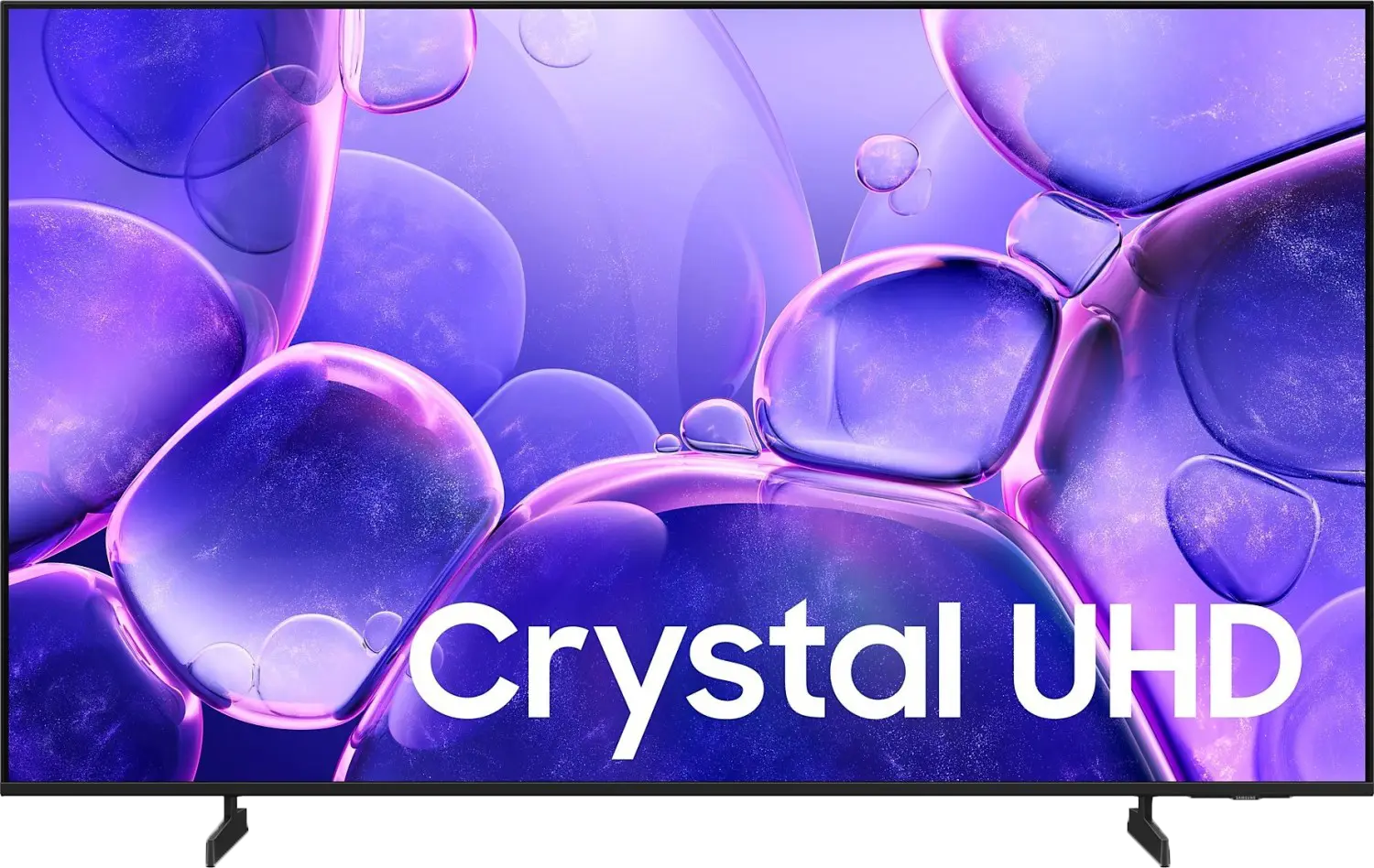
Panel type: WRGB OLED
Resolution: 3840x2160
System: Google TV
Model year: 2024
Complete the survey to find out the result

Panel type: LCD IPS
Resolution: 3840x2160
System: Tizen
Model year: 2025
Complete the survey to find out the result

Overall rating
8.1
5.3
Movies and series in UHD quality
8.2
4.9
Classic TV, YouTube
8.6
4.8
Sports broadcasts (TV and apps)
8.8
5.2
Gaming on console
9.5
6.1
TV as a computer monitor
6.4
6.0
Watching in bright light
5.7
3.4
Utility functions
6.7
5.3
Apps
9.6
8.7
Sound quality
8.1
5.7
Complete the survey to find out what fits your preferences
Advantages
Perfect blacks - OLED
High brightness HDR
Support for advanced HDR formats – HDR10, HDR10+, Dolby Vision, HGiG
Good motion smoothness - 144Hz
Excellent gaming compatibility – ALLM, VRR, low input lag
One of the best viewing angles on the market
Excellent colour reproduction after calibration
Four-sided Ambilight system
GoogleTV operating system – rich selection of applications, voice control, easy operation
Good sound quality – built-in soundbar
Extensive Smart system: Tizen
Good viewing angles (IPS Matrix)
Great for working with text - displays fonts excellently
Low input lag
Basic features for gamers - VRR and ALLM
Disadvantages
Visible tonal transitions
Infrared remote control
Font display issues (PC computer)
Lack of recording functions from built-in tuners and PIP
Price relative to competitors
Low brightness
Very poor black and contrast (IPS Matrix)
Inferior appearance to its predecessor
Infrared remote control
Our verdict
The U8000F is a very basic television that may find its buyers among those looking for the cheapest Samsung 4K with Smart TV. And that is precisely its task. Thanks to the Tizen system, this model offers quite a lot in terms of smart features – the number of apps and possibilities may catch the attention of those who want a reasonably intelligent device at the lowest possible price. As for picture quality – it is average, which is not surprising in this class. Nevertheless, there are a few positives: fairly good viewing angles work well for traditional TV watching from different parts of the room, and the basic features for gamers (such as VRR and ALLM) may suffice for typical "Sunday" gamers. The PC mode also deserves a mention – the television handles font display very well, so it can also serve as a budget monitor. Of course, this is not a model that can be recommended to everyone "sight unseen." But if someone is looking for a cheap Samsung with 4K resolution and a solid Smart system, that is exactly what the U8000F offers.
TV appearance





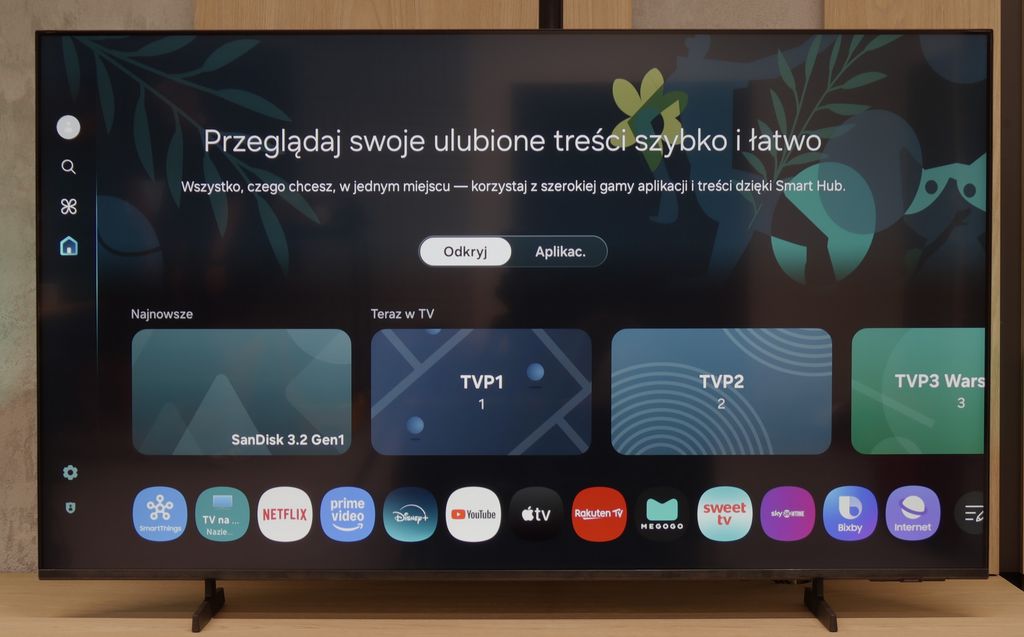
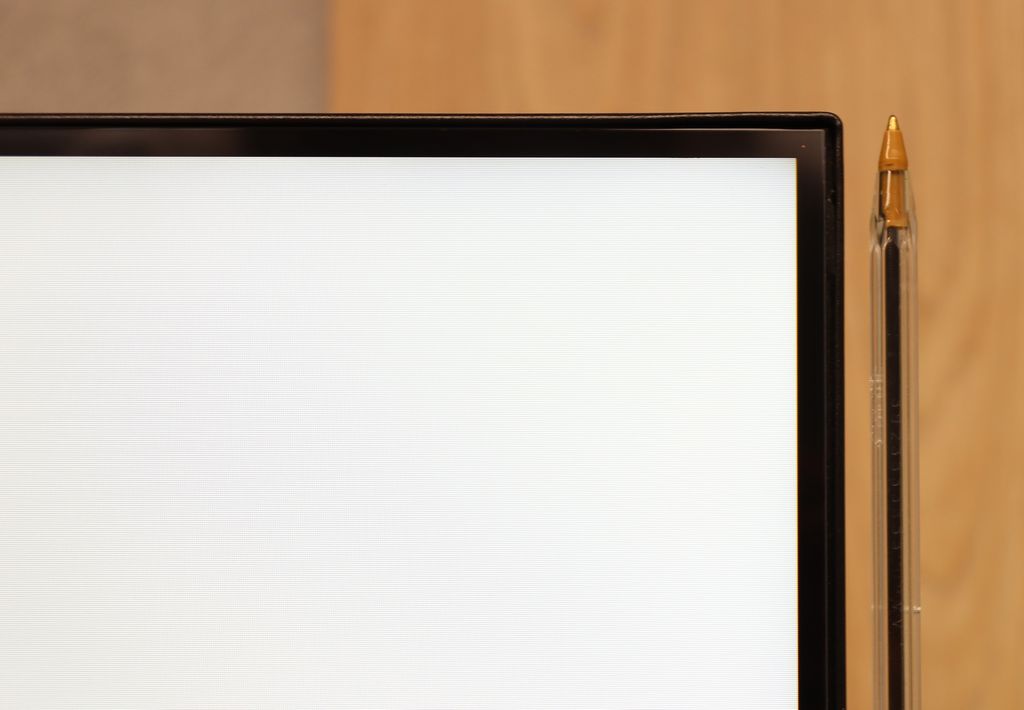
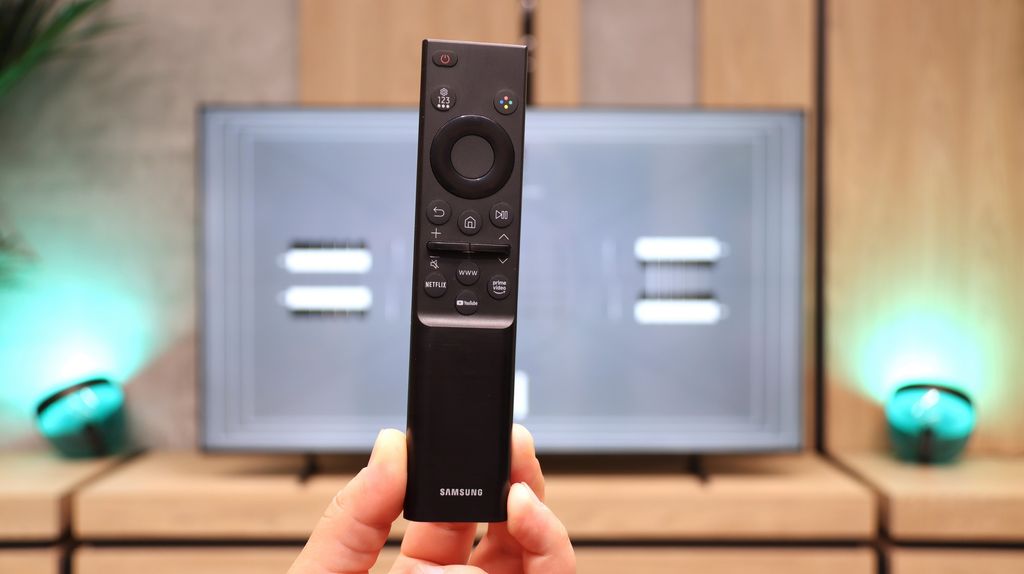
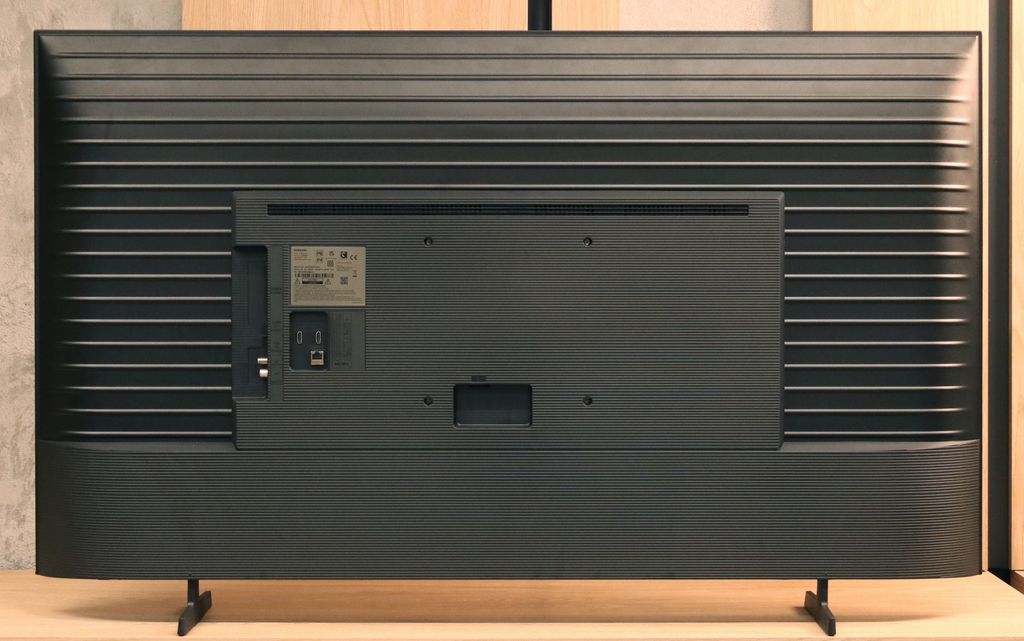
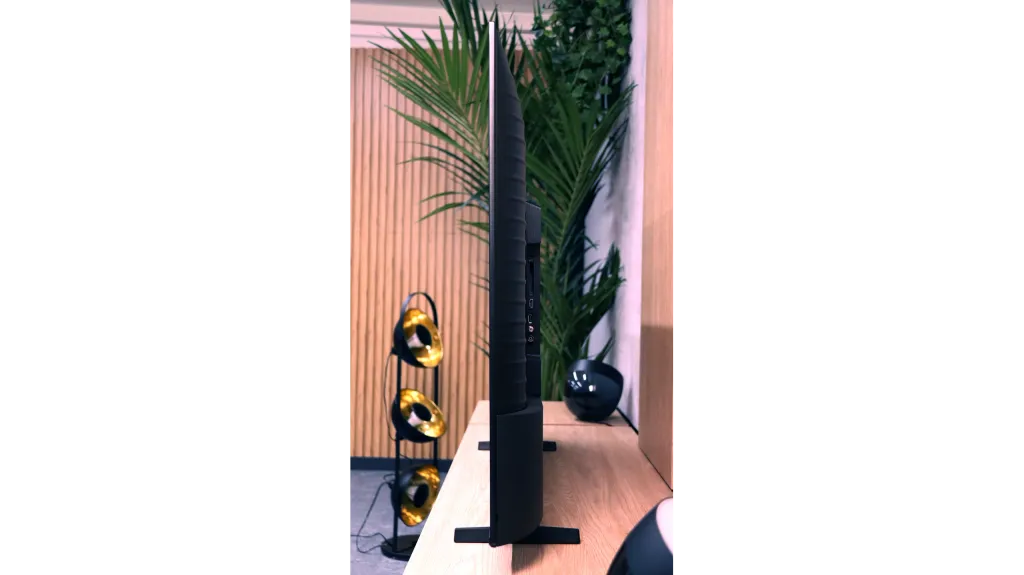
Contrast and black detail
10/10
1.1/10
Local dimming function: No
Contrast:
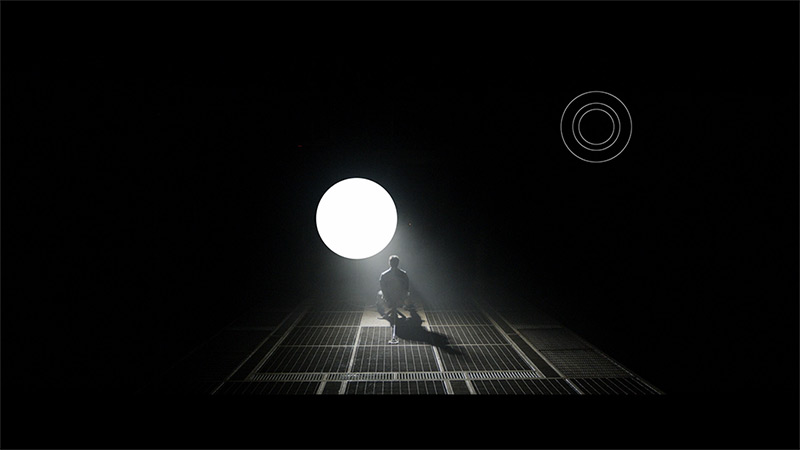
Result
∞:1
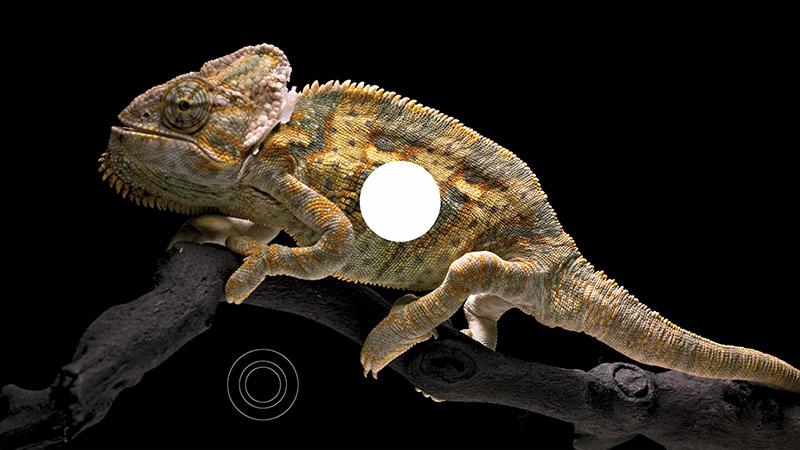
Result
∞:1

Result
∞:1

Result
∞:1
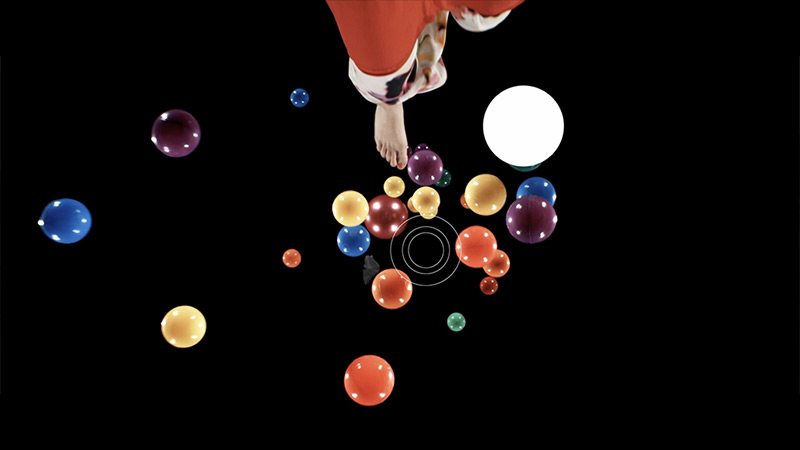
Result
∞:1

Result
900:1

Result
800:1

Result
700:1

Result
700:1

Result
650:1
Halo effect and black detail visibility:

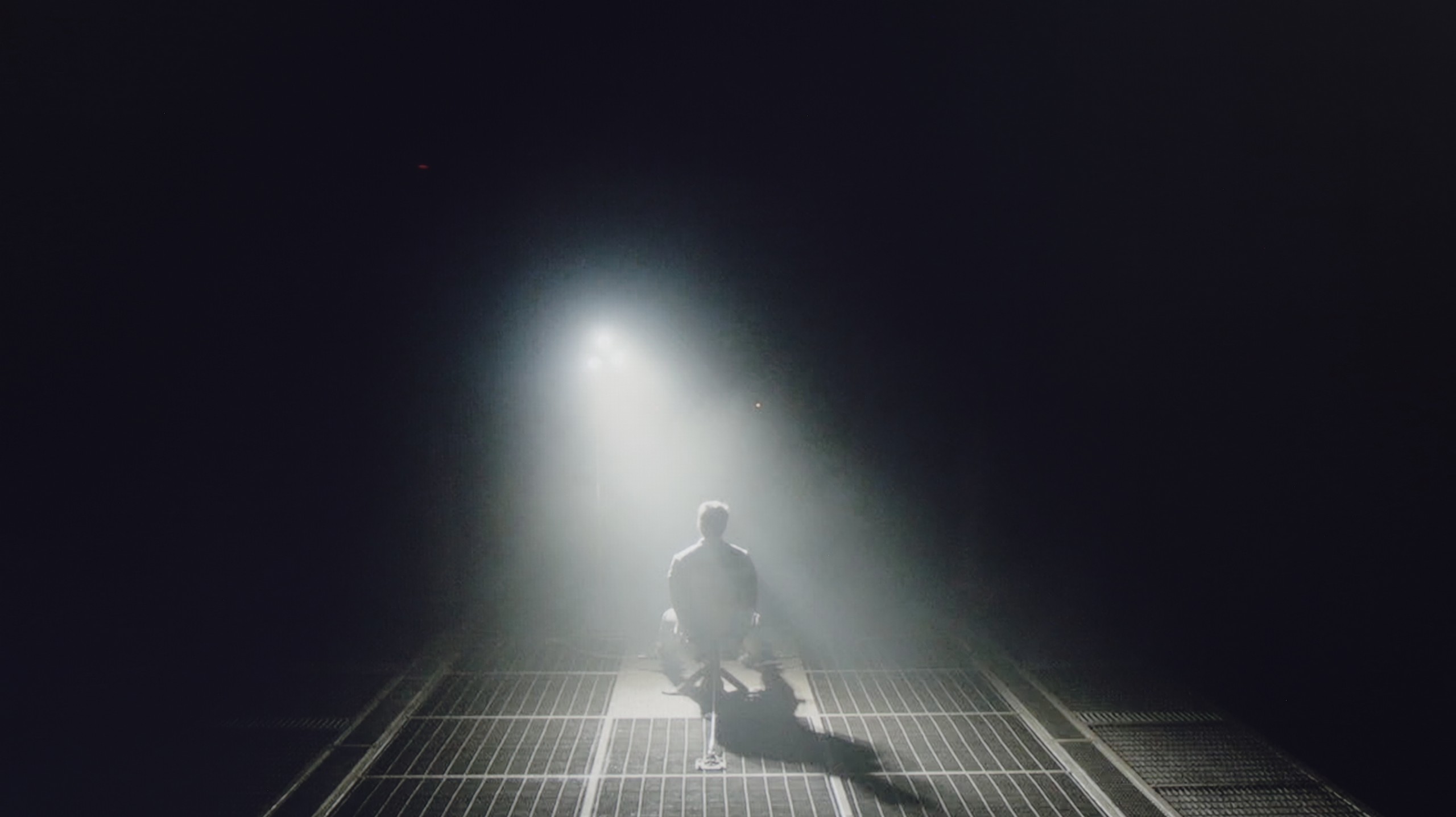
The Philips OLED909 presents exemplary achievements in the category of contrast and black levels, characteristic of OLED technology. Tests on five panels confirmed infinite contrast, making the television an ideal choice for film enthusiasts in darkened rooms. A scene from the film Oblivion impresses with the excellent separation of light from the lamp, allowing full appreciation of the precise reproduction of even the smallest details. The scene from the film Sicario 2 also performs well, where the bright lights of the helicopter have been perfectly separated from the dark background. However, in this same scene, the phenomenon of desaturation, or loss of colour saturation, is noticeable. Although this is not directly related to the assessment of contrast and black levels, it is worth mentioning, especially if perfect colour reproduction in every situation is crucial. Despite this minor flaw, the black levels generated by the Philips OLED909 remain incredibly deep and deserve top marks.
Samsung U8000F, more specifically model U8092F in the 55-inch version, is equipped with an IPS panel. Let's be honest – this is not the best choice when it comes to properly displaying black levels and contrast. The results in this category are simply weak. The contrast is abysmal, and watching dark scenes with any kind of "cinematic" effect is nearly impossible. Additionally, the fact that the television lacks local dimming does not help, making it difficult to achieve better results. The only thing worth praising is the fairly decent uniformity of the panel – but that's more of a minor consolation. Overall, it's not good. If you value deep blacks and reasonable contrast, it is definitely better to opt for the variant with a VA panel, which performs significantly better in this particular series.
HDR effect quality
7.8/10
3/10
Luminance measurements in HDR:

Result
1394 nit

Result
1471 nit
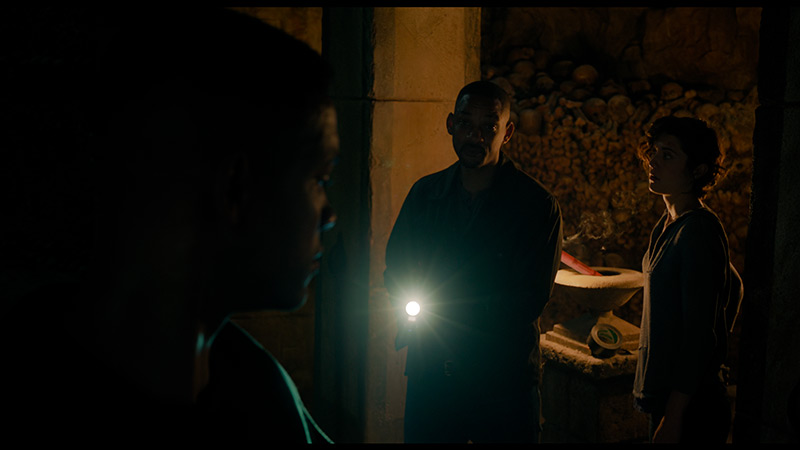
Result
1594 nit

Result
1552 nit

Result
708 nit

Result
191 nit

Result
224 nit

Result
241 nit

Result
79 nit

Result
234 nit
Scene from the movie “Pan” (about 2800 nits)


Scene from the movie “Billy Lynn” (about 1100 nits)


Static HDR10


Dynamic: Dolby Vision
Dynamic: HDR10+


HDR luminance chart:
Samsung U8000F (IPS)
HDR luminance
Philips OLED909
HDR luminance
Luminance of RGB colors
Philips OLED909 impresses with its HDR quality, achieving up to 1500 nits of peak brightness in tested scenes. This is an excellent result, placing this television among the best OLED models on the market. The MLA panel, also used in models such as the Panasonic Z95A and LG G4, plays a key role here, allowing for exceptionally bright and detailed reproduction of dynamic scenes. However, it is worth noting that in the most demanding scene from the film The Meg, brightness drops to around 700 nits. This is a typical phenomenon in OLED technology, where intensely bright full-screen images cause a limitation in luminance. Nevertheless, the HDR effect still looks very good, and the television performs better than most of the competition under similar conditions. The wide colour gamut coverage also deserves praise. The OLED909 offers 95% coverage of DCI-P3, ensuring that the television can display vibrant and realistic colours.
Better does not mean good – and that is exactly how to summarise the capabilities of U8092F when it comes to displaying bright movie scenes in HDR mode. The brightness of the panel is just under 250 nits, which is definitely too little to enjoy any light effects. An interesting situation was observed during the measurement of the fourth scene from the film Sicario 2 – the television clearly dimmed the entire screen in an attempt to achieve better black levels (which remain weak anyway). One might even suggest that the device is using some form of 'global dimming', but unfortunately – the results are still very poor. To make matters worse, the television does not support a wide colour gamut – the coverage of the DCI-P3 space is around 80%, so one cannot expect truly vibrant colours. The HDR image here looks more like a slightly brightened SDR, and it is this form that we would suggest sticking to when it comes to this television.
Factory color reproduction
7.6/10
6.5/10


Factory Mode
After calibration
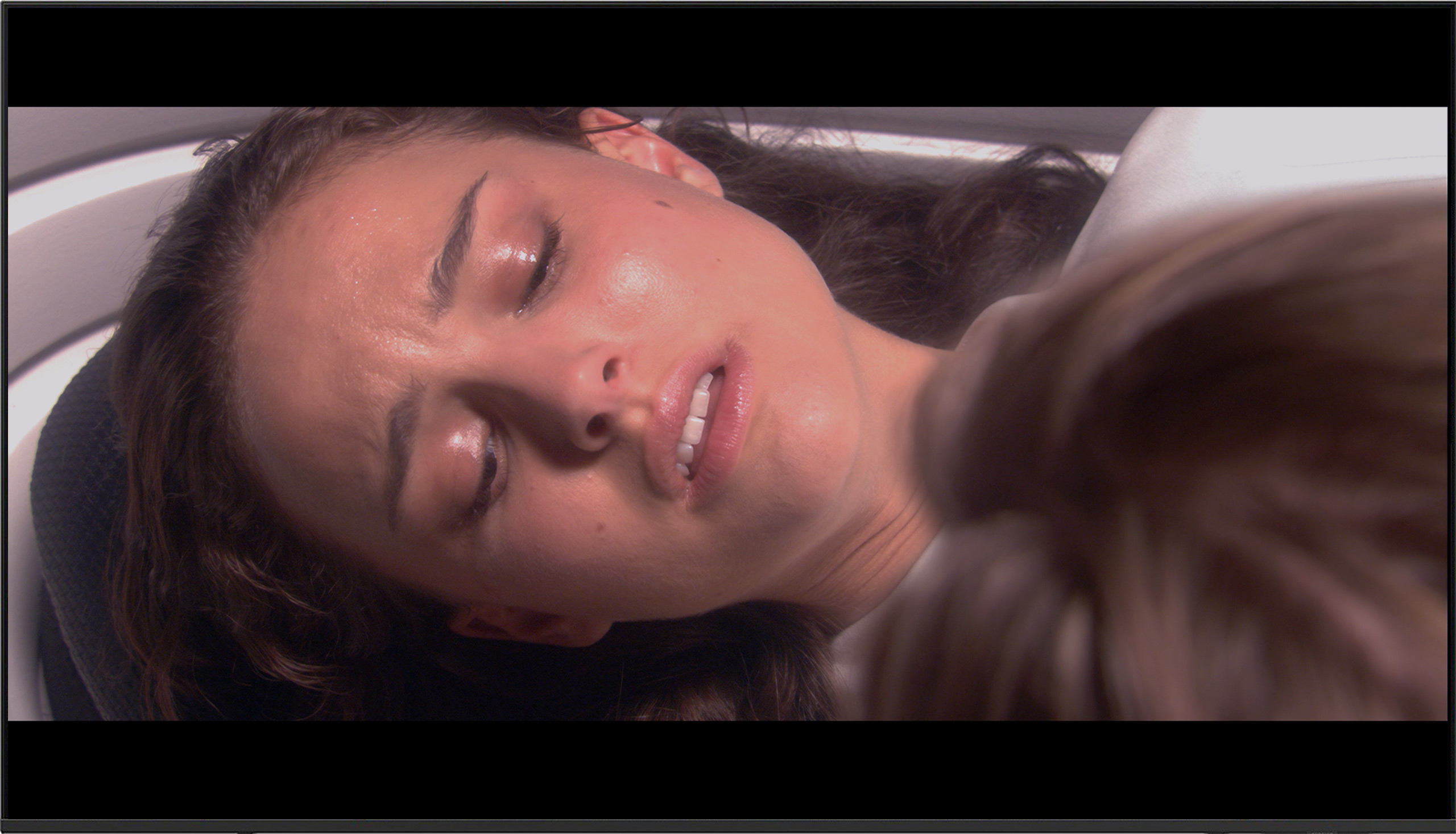
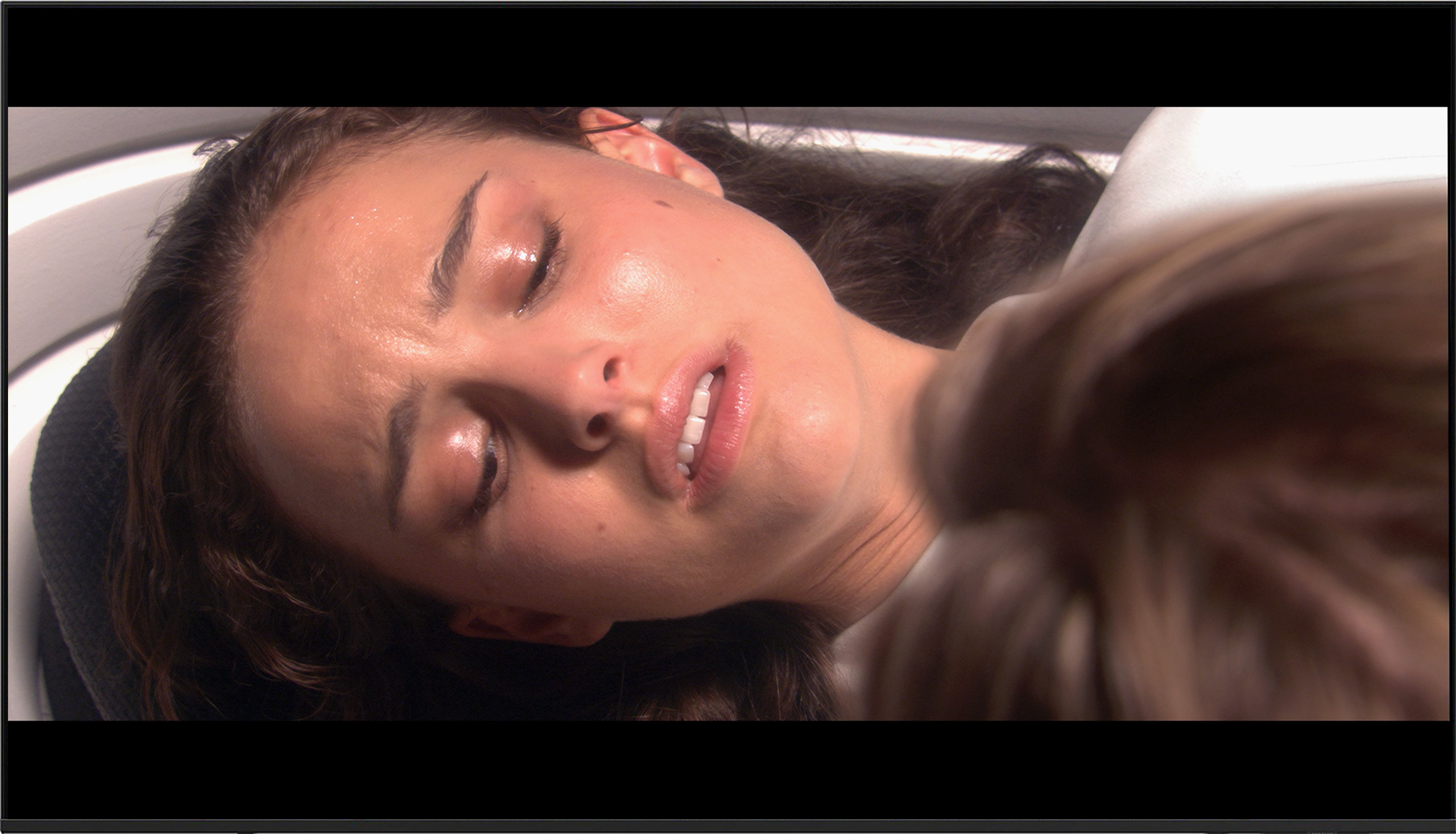
Factory Mode
After calibration
Just like with other televisions, the Philips OLED909 has been tested for colour reproduction in factory modes. The best mode turned out to be Filmmaker Mode, however, despite its name, it is not without flaws.
The biggest problem is the white balance. In both HD and 4K HDR content, there is a noticeable dominance of green and red hues, which causes a distinct yellowing of the screen. This effect is particularly evident in test materials, for instance in a scene with Tom Cruise in the foreground, where the difference compared to a calibrated image is very apparent.
As for brightness characteristics, in HD material the gamma was overly boosted – it was below the reference value of 2.4, which gave the image a “milky” filter and affected overall clarity. In the case of 4K HDR content, we noticed the opposite phenomenon – at the beginning of the EOTF curve, there is a noticeable drop, indicating problems with reproducing the smallest details in dark scenes. Although Filmmaker Mode offers acceptable quality, noticeable errors in white balance and brightness characteristics show that the television requires additional calibration to fully demonstrate its potential in colour reproduction.
The Samsung U8000F has been tested in the best possible picture mode built into the television, namely Filmmaker Mode. This mode should – at least in theory – offer a cinematic, reference picture without unnecessary enhancements. In the case of SDR content (mainly HD/SD), the television, out of the box, showed itself surprisingly well. Errors in white balance hovered around a value of 3, which is roughly on the edge of perceptibility. The only complaint could be about brightness management – the gamma graph showed a slight tendency to lighten or darken certain sections, but even so, the overall performance is quite good for this price segment.
Unfortunately, it looks much worse in HDR mode. Although the white balance was not terrible, the television had significant colour errors – particularly evident in the Color Checker graph, where almost every sample hit outside the target point. The picture in HDR simply looks unnatural, and the colours can be shifted, dull, or too cool. This largely stems from the fact that the U8000F does not support a wide colour gamut (DCI-P3). The television is physically unable to display correct colours in the HDR standard – and unfortunately, this is felt in every more demanding material.
Color reproduction after calibration
9/10
7.5/10




Philips OLED909 offers tools for image calibration, which significantly improves its quality. After calibrating the Filmmaker Mode, the television presents a much more natural colour representation. The white balance after calibration looks very good. Although we noticed slight deviations in the blue tint in HD content, the errors are within acceptable limits, and the image gives a much better impression than in the factory settings. The brightness characteristics, including gamma and EOTF, have also been clearly improved. The television no longer has issues with excessive brightening or darkening of the image. Both dark and bright details are now rendered correctly, making the image look very good in every scene. After calibration, the Filmmaker Mode in the Philips OLED909 offers excellent image quality that will meet the expectations of even the more demanding users. Calibration fully utilises the potential of this model.
Although the U8000F already offered a fairly well-balanced image in SDR straight out of the box, we were able to refine it a bit further. We managed to eliminate a slight purple tint and adjust the gamma to a more sensible level. However, the television still has a tendency to overexpose the smallest and brightest parts of the image – the gamma chart shows a characteristic 'dip' that is difficult to completely straighten out.
Unfortunately, the situation is worse in HDR. It's hard to speak of any significant improvement here – the television is simply not designed for HDR content. We tried to correct the image in the advanced settings, but despite our efforts, the colour errors remained substantial – a delta E above 7 indicates very noticeable deviations. It's a bit disappointing, but that's the nature of budget construction. In SDR, the U8000F performs reasonably well, whereas HDR is just not its league.
Smoothness of tonal transitions
4.6/10
9/10












The Philips OLED909 performs average in terms of fluidity of tonal transitions. The WOLED panel used in this model is not known for handling tonal transitions perfectly, and in the case of the OLED909, it looks somewhat worse than in competing models with similar panels. There are noticeable subtle transitions and colour blends in the bright and dark areas of the image, which can be particularly visible in more demanding scenes with subtle gradients. This effect may influence the perception of content, especially for users who pay attention to such details.
Another important aspect to consider when assessing image quality is the smoothness of tonal transitions – that is, how well the television handles the blending of colours and shades. And here the Samsung U8092F performs... almost perfectly. On the test patterns, there are no noticeable stepping transitions, no issues with colour gradients, and the whole picture is not artificially sharpened, which unfortunately happens with many televisions in this class. The image appears natural and very clear. We noticed minimal issues with the brightest scenes, but that is more nitpicking, which only a very trained eye will catch.
Image scaling and smoothness of tonal transitions
6.9/10
5/10
Smooth transition function

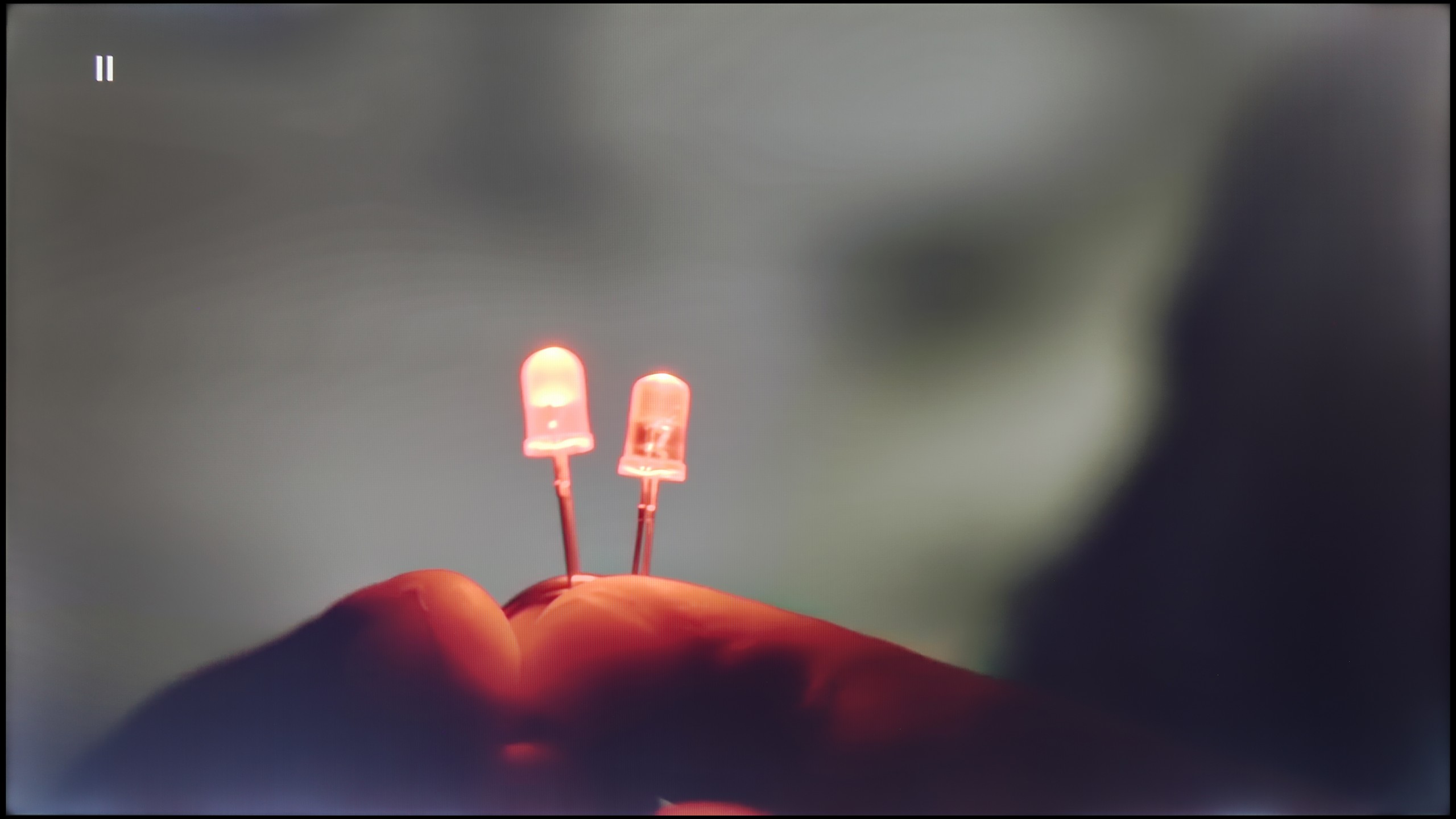
Image without overscan on the SD signal


The Philips OLED909 offers a distortion reduction feature aimed at smoothing tonal transitions. Unfortunately, the effectiveness of this function leaves much to be desired. Setting it to the "Medium" level brings certain effects, but it comes with the risk of blurring important details in the image. For this reason, we do not recommend using this option unless we are keen on mitigating visible artifacts at the cost of detail.
As for image scaling, the television presents a very plastic image, which may appeal to viewers who prefer a softer picture. Those expecting clearer sharpness will also find a solution, as image scaling can be adjusted according to individual preferences in the settings.
When it comes to how the Samsung U8000F handles lower quality materials, we must admit that Samsung has made progress compared to its predecessor from last year – namely the DU7192 model, which theoretically occupies the same spot in the range.
This year's model has been equipped with a feature that enhances the fluidity of tonal transitions, which has been implemented much better than last year. Yes, the television still uses fairly strong algorithms that can distort details or remove film grain, but despite that – it can be confidently said that it works effectively.
However, not everything has gone perfectly. The U8000F has noticeable issues with slight image stuttering when watching very old content in very low resolution. If someone plans to play their old VHS tape, they must reckon with the fact that the image may appear slightly "choppy".
Blur and motion smoothness
8.5/10
4.5/10

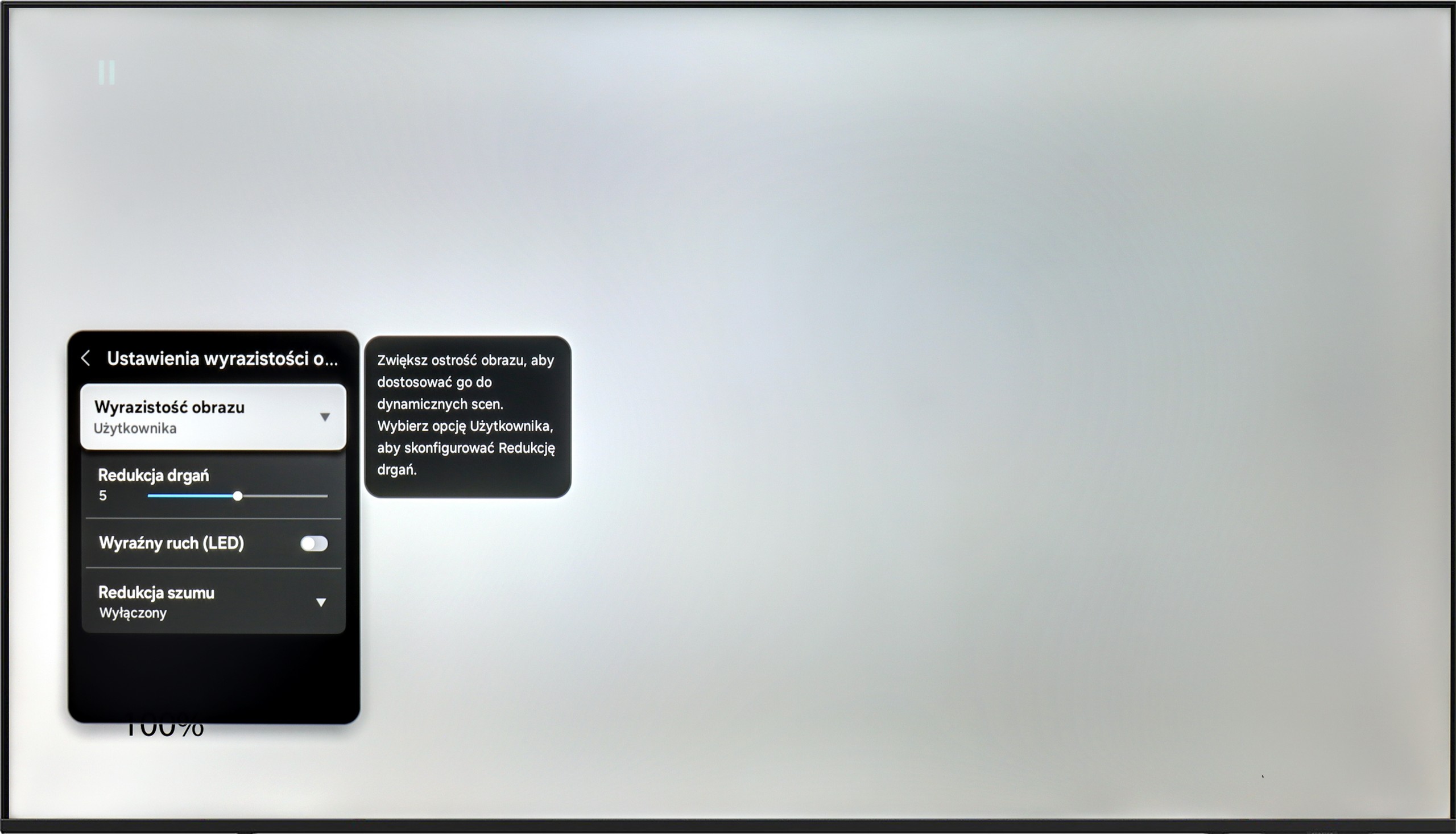
Blur (native resolution, maximum refresh rate):




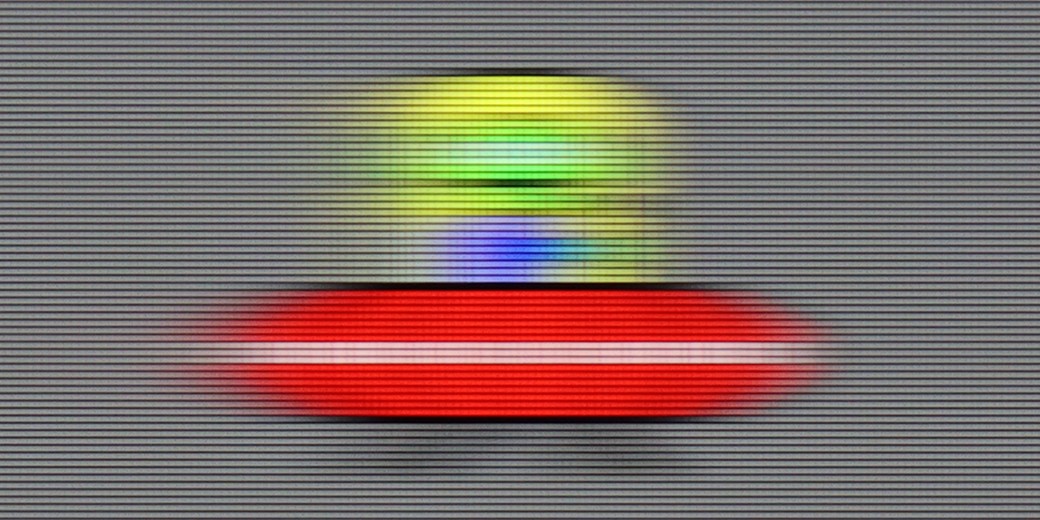

The Philips OLED909 with a 144 Hz panel offers excellent motion smoothness, which should satisfy both film enthusiasts and gamers. Additionally, the television is equipped with a motion smoothing feature called "Motion Style", which allows for precise adjustment of motion fluidity to personal preferences. In the settings, we find two sliders: "Smoothness", responsible for regulating motion fluidity in films, and "Blur Reduction", which helps eliminate minor artifacts and distortions in dynamic scenes. This feature works well, ensuring that even rapid movements on the screen are clear and readable.
The Samsung U8000F is equipped with a 60 Hz panel, so it's clear from the outset that we shouldn't expect miracles. It's simply the standard in this class – sufficient for everyday viewing but without any fireworks.
The television offers a single motion smoothing slider – a function called “Motion Blur Reduction”, which allows us to adjust the smoothness of the image in films. Higher settings provide a more “theatrical” and smoothed effect, while lower settings maintain the original character of the film with a slight 24p effect. An interesting feature is “LED Clear Motion”, which is a BFI mode – that inserts black frames between frames of the image to improve motion clarity. However, in practice, the screen flickers quite a bit when this feature is activated, and it should be regarded more as an experiment than something that genuinely enhances the comfort of gaming.
Console compatibility and gaming features
10/10
4/10
- ALLM
- VRR
- VRR range40 - 144Hz48 - 60Hz
- Dolby Vision Game Mode
- Correct implementation of HGIG
- 1080p@120Hz
- 1440p@120Hz
- 4K@120Hz
- Game bar

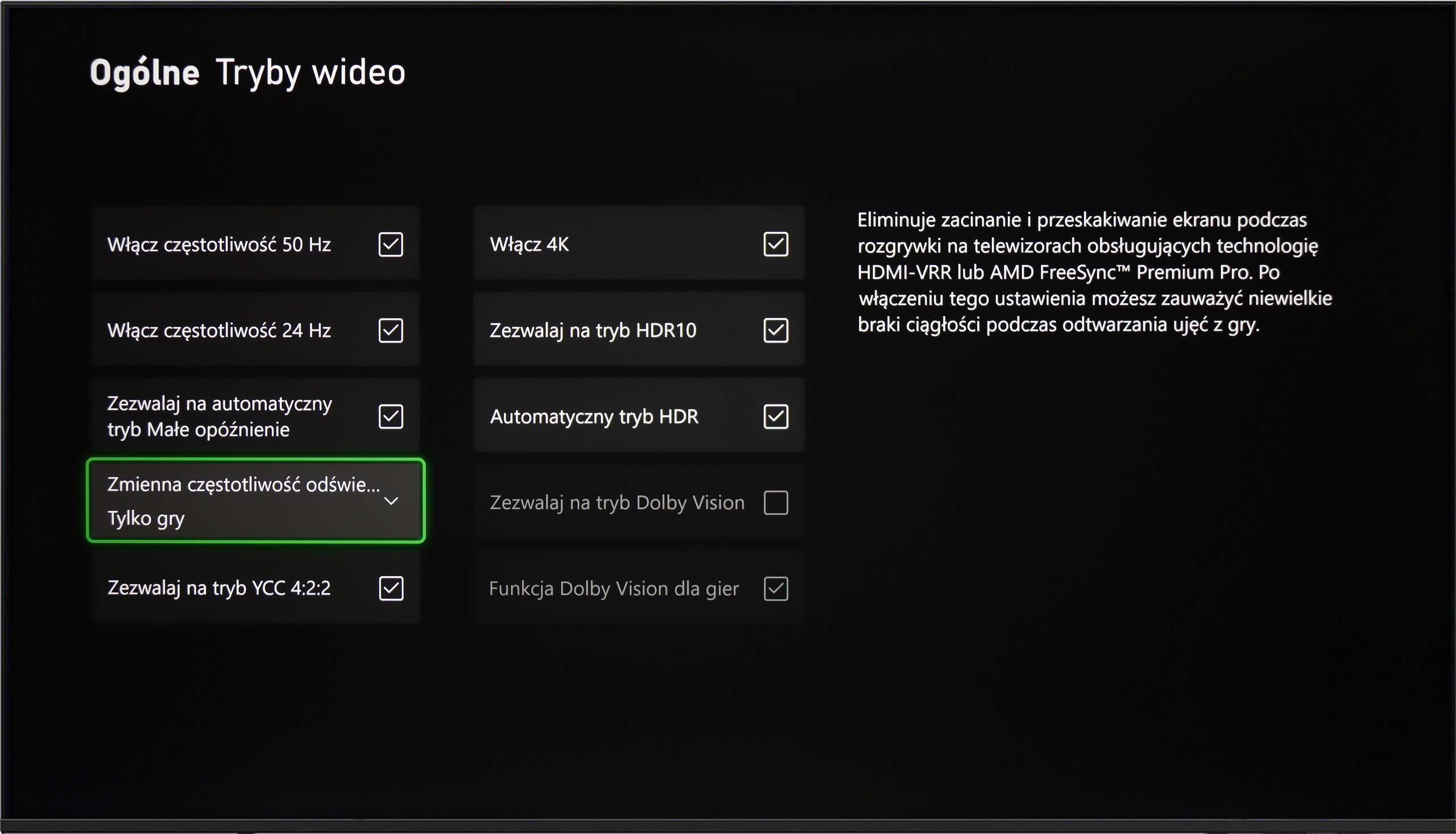

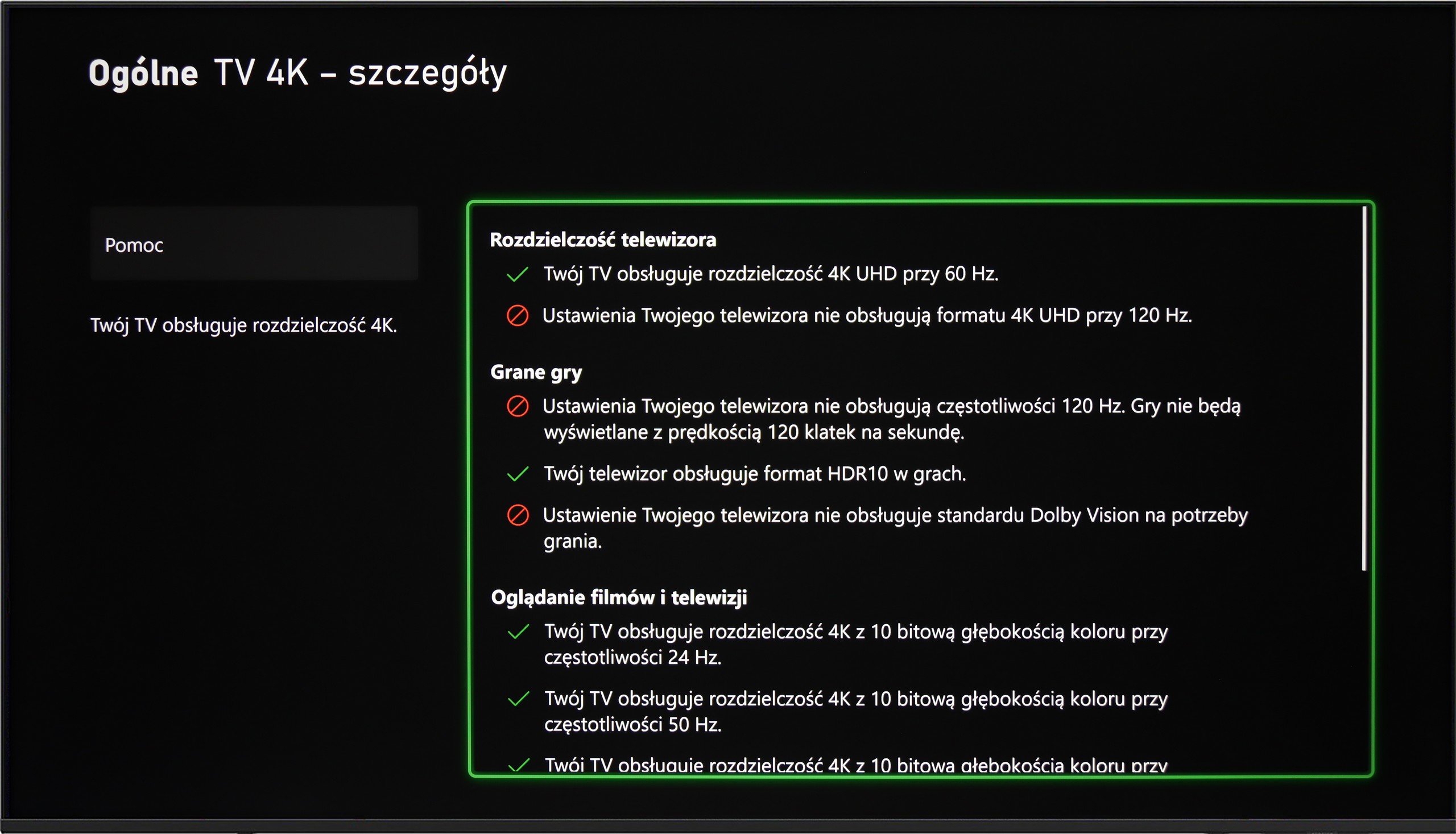

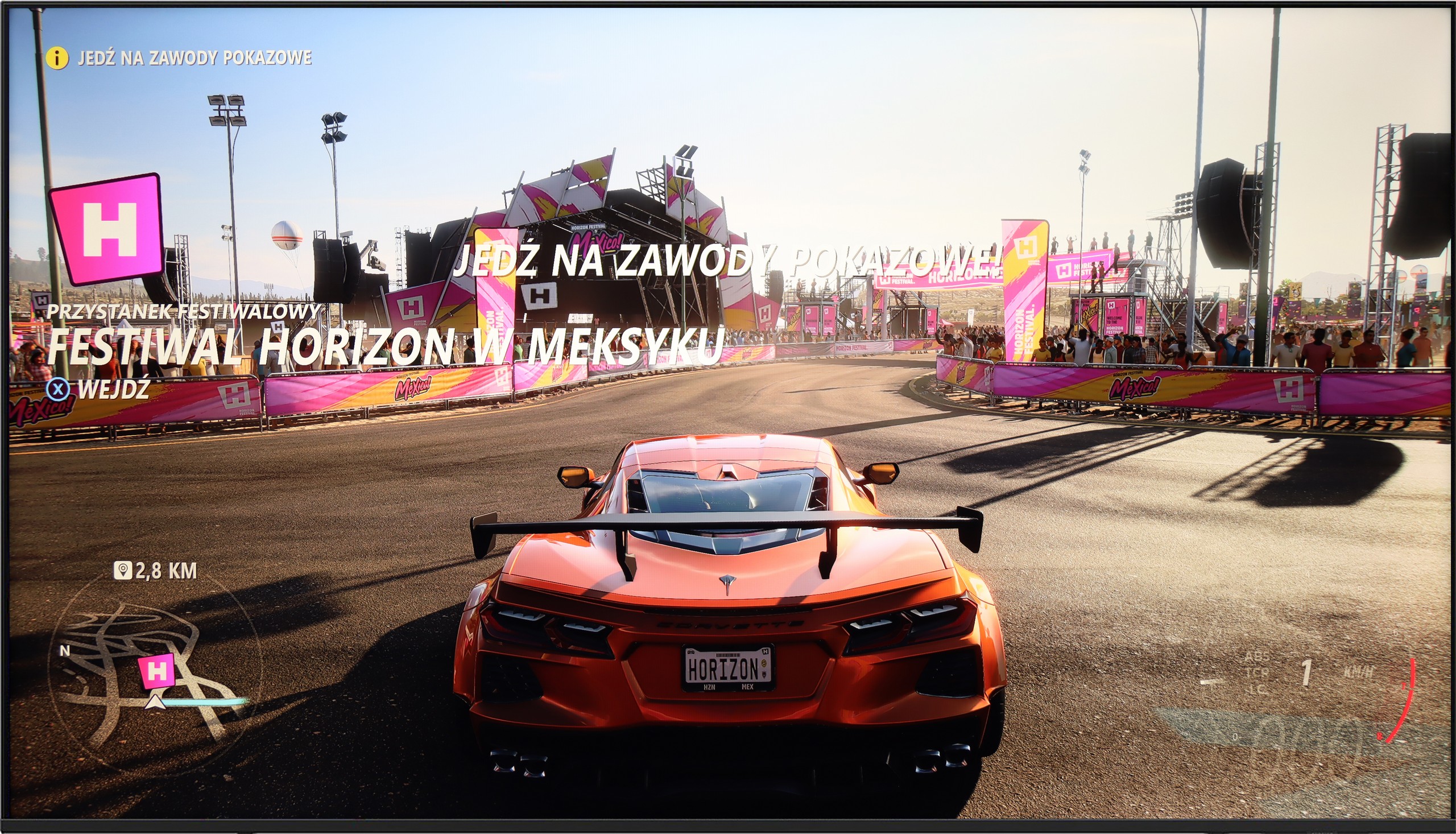


The Philips OLED909 is a television that meets practically all the requirements of gamers. Equipped with ALLM (Auto Low Latency Mode), VRR (Variable Refresh Rate), and support for Dolby Vision, it guarantees an excellent gaming experience. Additionally, the television offers very low input lag, ensuring that reactions to player movements are instantaneous, which will be particularly appreciated by fans of fast-paced games.
The television handles any resolution at 120 Hz without any issues, and even supports higher refresh rates. The HGiG feature, responsible for accurately displaying HDR content in games, works as it should, making the image in game mode balanced and aligned with the guidelines of console manufacturers.
The OLED909 is also equipped with the Game Bar feature, which allows for quick preview and adjustment of game-related settings. Although the interface of this solution appears less visually appealing than that of competitors, it serves its purpose well, offering all the essential options in one place.
The Samsung U8000F offers a basic set of features for gamers, which may still prove sufficient for less demanding users. It includes an automatic game mode – upon launching a game on the console, the television automatically switches to low latency mode, significantly improving response times. We also find a VRR feature, meaning variable refresh rate, which operates within a range of 48 to 60 Hz. This means that both Xbox and PS5 will not produce the effect of screen tearing – provided, of course, we stay within this range.
Unfortunately, that is about it when it comes to advantages. Add-ons like Game Bar or higher refresh rates are reserved for higher models of Samsung's 2025 line. In theory, the television also supports the HGiG function, which should adjust HDR images to the intentions of game developers. Unfortunately – despite this feature appearing in brochures and retail materials – its configuration on the Xbox console has proven to be... impossible in practice.
Input lag
10/10
10/10
SDR
HDR
Dolby Vision
Philips OLED909 achieves remarkable results in the input lag category. Values of 13 ms at 60 Hz and 5 ms at 120 Hz are among the best outcomes available on the market. Such low input lag ensures immediate response, which is crucial for gamers expecting maximum precision in dynamic games. Special praise is warranted for its performance in Dolby Vision mode, where low input lag is also maintained. This allows gamers to enjoy not only smooth gameplay but also the full visual potential of HDR games without any compromises. Philips OLED909 is one of the best choices in this regard for gaming enthusiasts.
The Samsung U8092F performed phenomenally in our input lag tests. Regardless of resolution or mode – the results were very low, which is truly impressive for this price segment. One can confidently say that playing on this television will not cause frustration due to large delays between what we do on the controller and what we see on the screen. For most gamers, even the more demanding ones, this result should be more than satisfactory.
Compatibility with PC
6.4/10
6/10

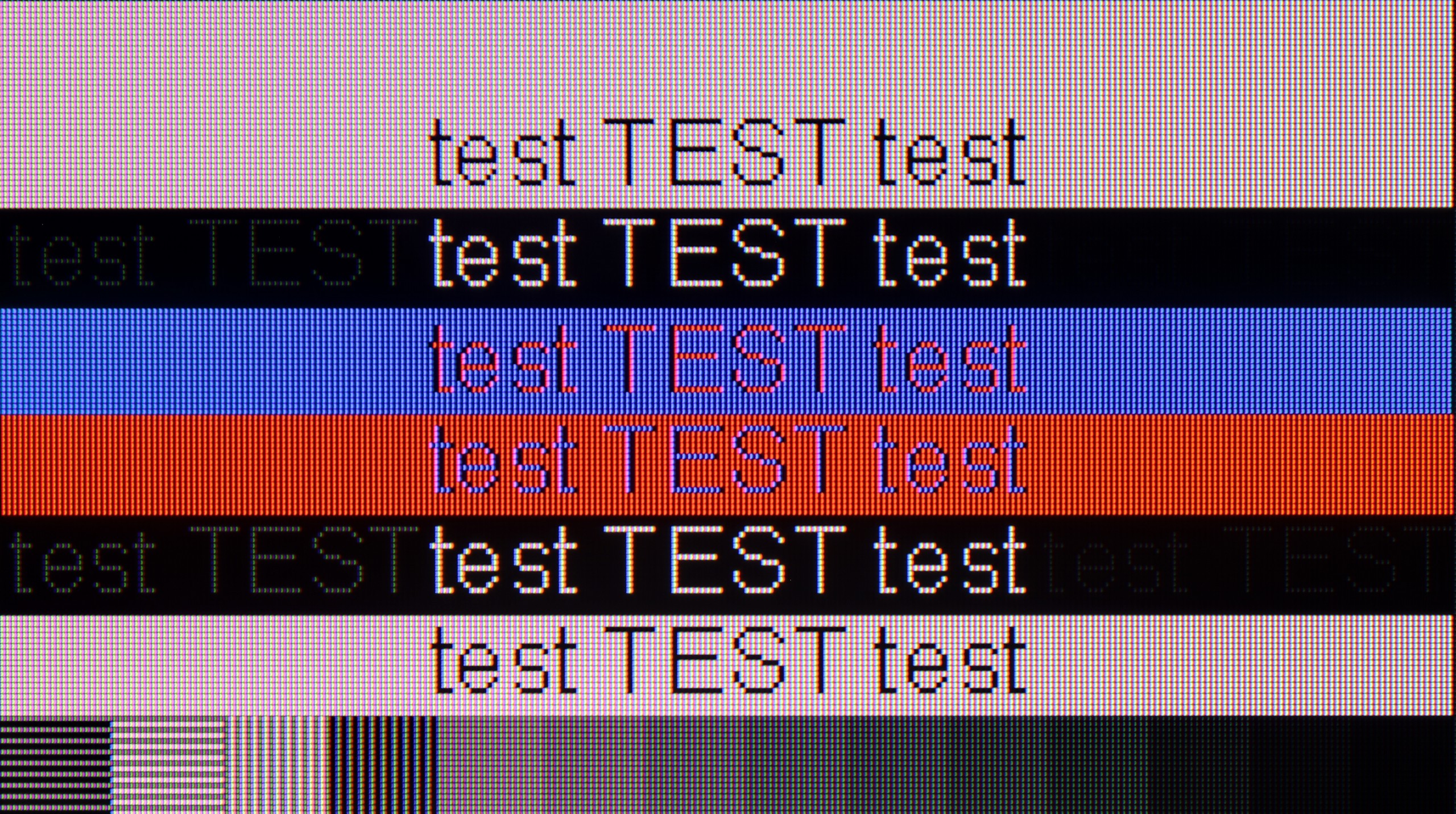
The Philips OLED909 is a good choice for gaming on a computer. The television supports G-SYNC, provides very low input lag and offers a refresh rate of 144 Hz in PC mode, making it an ideal solution for gamers who value smooth and responsive gameplay. However, for everyday work with text or graphics, the situation is slightly worse. Although the readability of fonts is at an acceptable level, up close, you can notice that they appear slightly blurry. This is due to the lack of full implementation of chroma 4:4:4, which is responsible for perfect sharpness and clarity of fonts.
The OLED909 will perform excellently in gaming applications, but for those planning to use the television mainly for text work, it may be less suitable. In such cases, it is worth considering a device with full support for chroma 4:4:4.
Working on a computer with this television is an absolute pleasure. The Samsung U8092F supports chroma 4:4:4, and thanks to the layout of the sub-pixels in the IPS panel, the readability of fonts – regardless of colour or size – is very, very good. The television is also suitable for occasional gaming on PC, primarily due to its low input lag. However, one must take into account that the G-Sync function does not work on this model, which is odd as VRR functioned without any issues when it came to the console.
Viewing angles
9.7/10
7/10
The Philips OLED909 offers some of the best viewing angles available on the market. OLEDs are known for their excellent picture quality from various angles, but the use of micro-lens technology further enhances this capability. As a result, the television maintains excellent colours, contrast, and brightness even when watching the picture from a significant angle. In practice, the OLED909 performs so well that it can even compete with televisions equipped with technology QD-OLED, which also provides wide viewing angles. This makes the television perfect for large rooms and watching together from various positions without worrying about losing picture quality.
The viewing angles on the Samsung U8092F are very good – as one would expect from an IPS panel. The image does not lose much in terms of brightness or colour saturation, even with a greater deviation from the axis. Of course, this is not at the level of organic screens – but it is more than sufficient to comfortably watch the image at an angle, for example, from the side of the sofa.
Daytime performance
5.7/10
3.4/10

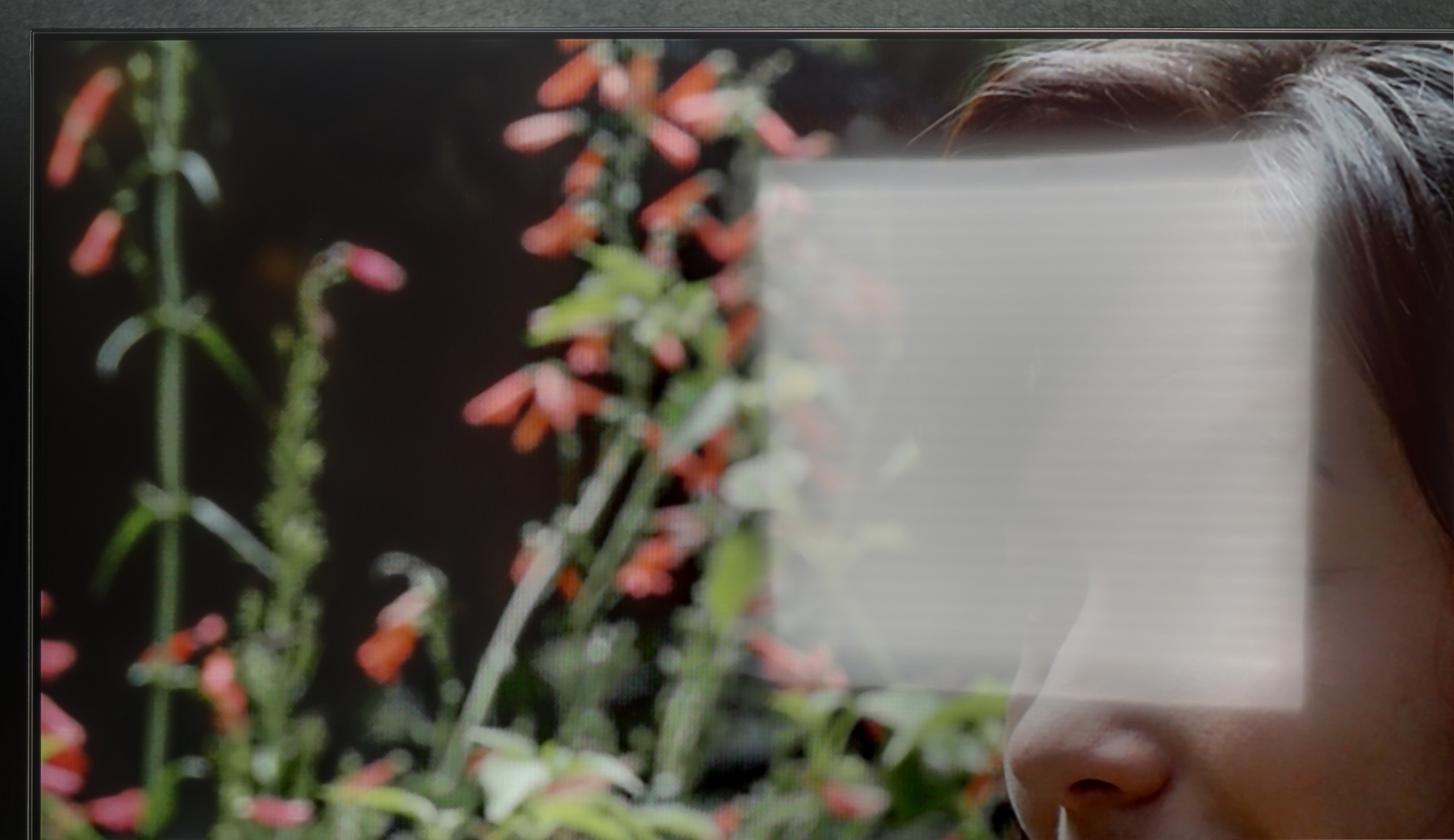

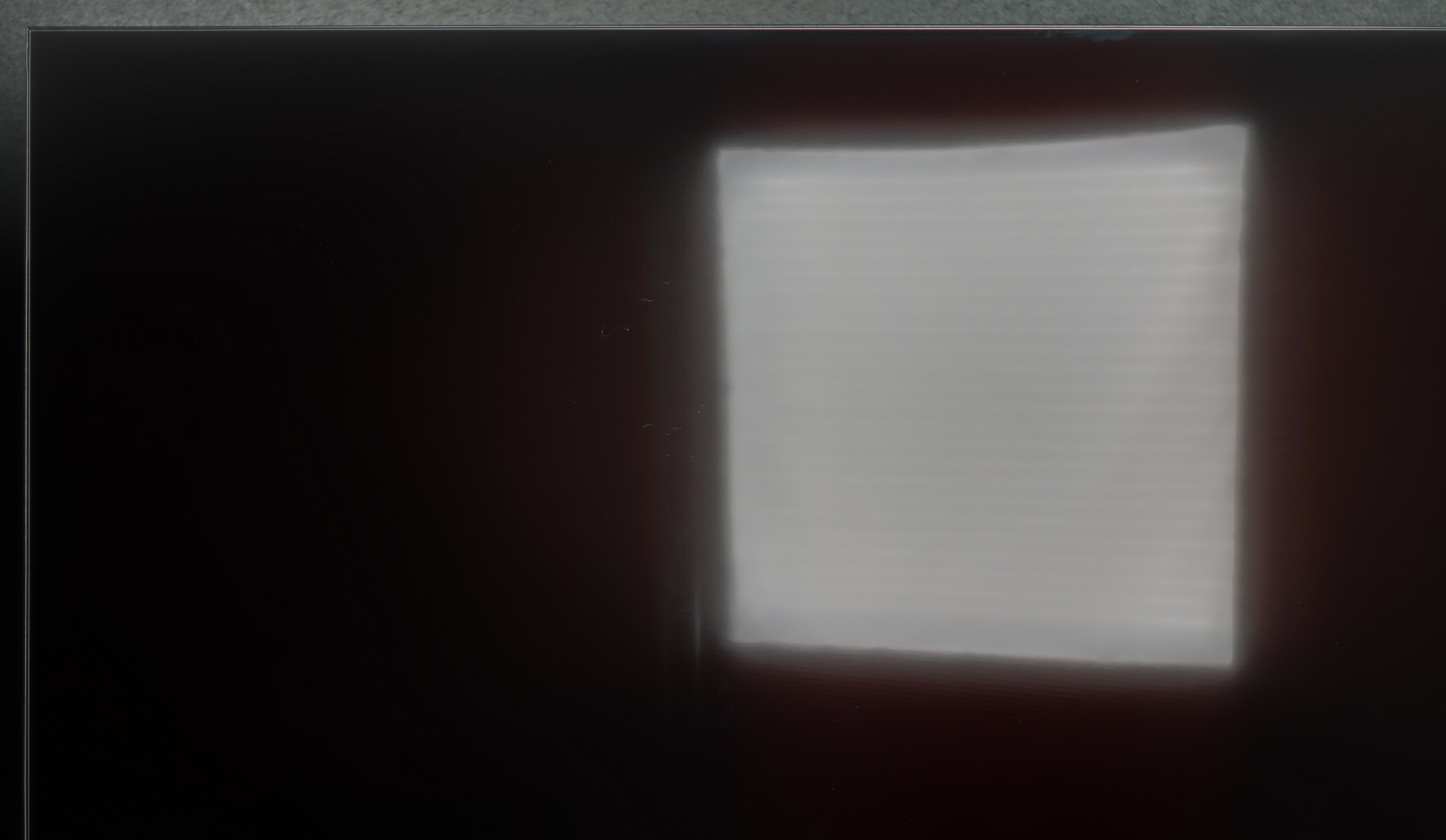
Panel brightness
Average luminance SDR
Samsung U8000F (IPS): 218 cd/m2
Philips OLED909: 427 cd/m2
Philips OLED909, despite the glossy surface of the panel, handles the suppression of reflections from light falling directly on the screen quite well. This is particularly useful in brighter rooms where reflections can disrupt viewing. However, the use of micro-lens technology has its limitations – the black levels during the day take on a slightly pink tint. A similar, although more noticeable phenomenon can be observed in QD-OLED panels.
Regarding brightness, the OLED909 achieves an average brightness in SDR of 430 cd/m². This is sufficient for comfortable use of the television even in moderately challenging lighting conditions. Nevertheless, it is worth remembering that the brightness levels of OLEDs still fall short of televisions with mini-LED technology, which can be several times brighter.
Thanks to the satin coating of the Samsung U8092F panel, it handles reflection suppression quite well. The screen does not function like a mirror, and the colours – considering the capabilities of this class of device – remain reasonably saturated, even in somewhat brighter conditions. Unfortunately, the coating alone cannot perform miracles. The television is simply too dim to effectively cut through very challenging lighting conditions. If we place it opposite a light source (e.g. a large window or a strong lamp) – unfortunately, one must reckon with the fact that not everything will be clearly visible on it.
Panel details
Subpixel Structure:

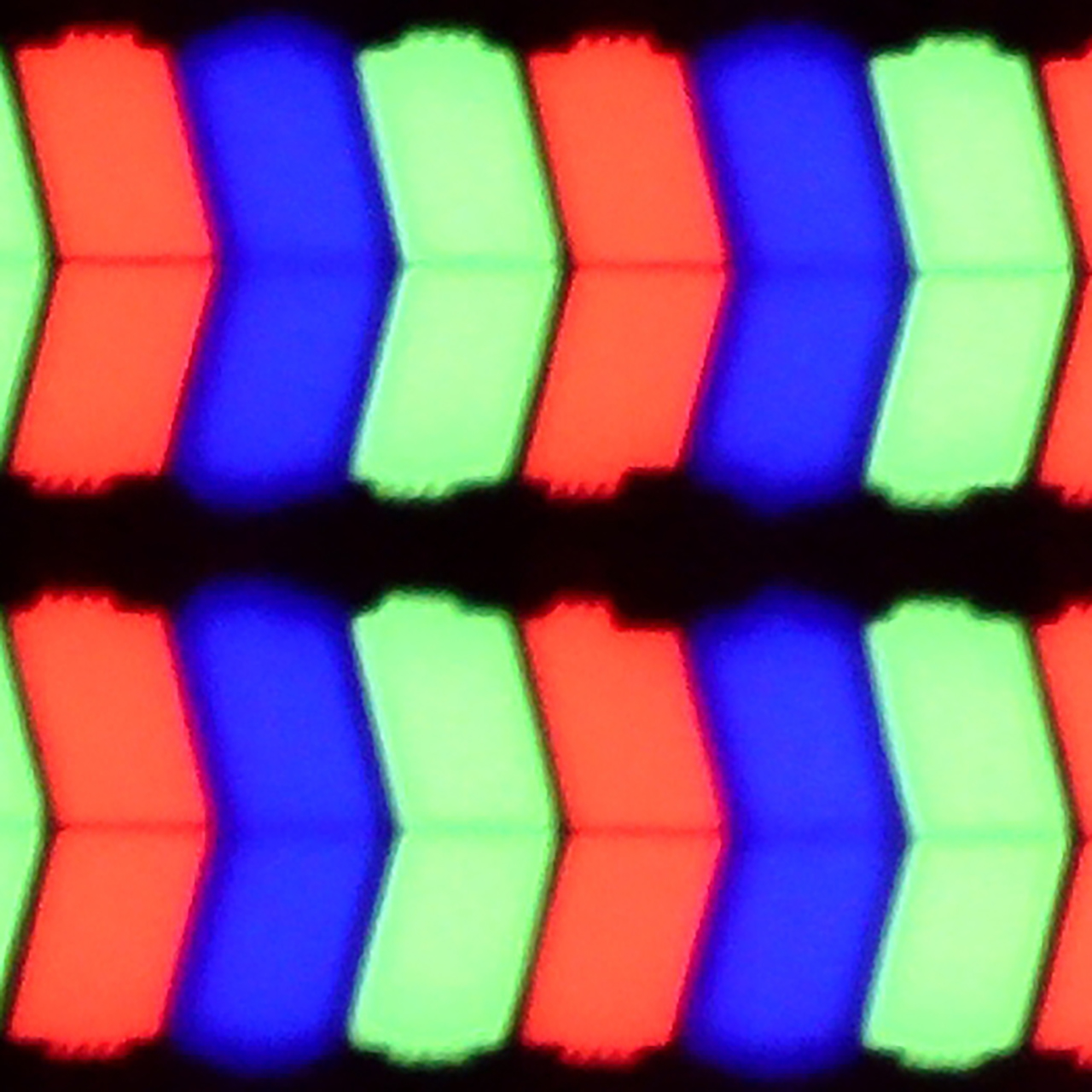
Panel uniformity and thermal imaging:

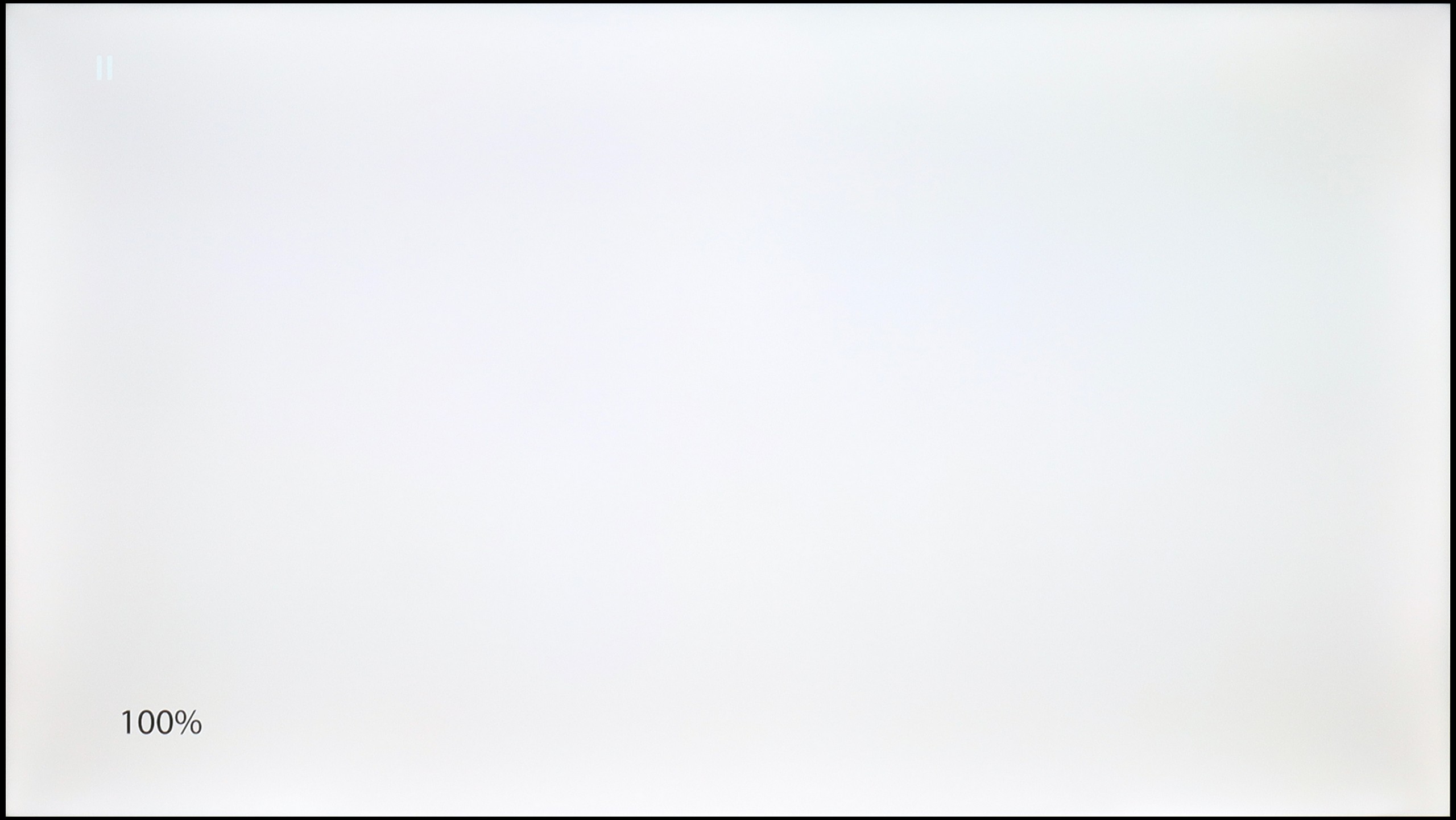
Philips OLED909
Samsung U8000F (IPS)
TV features
6.7/10
5.3/10
- HDMI inputs2 x HDMI 2.0, 2 x HDMI 2.1 48Gbps3 x HDMI 2.0, 0 x HDMI 2.1
- OutputsToslink (Optical audio), eARC (HDMI), ARC (HDMI), Mini-Jack (Headphones)eARC (HDMI), ARC (HDMI)
- Network InterfacesWi-Fi 2.4GHz, Wi-Fi 5GHz, Ethernet (LAN) 100MbpsWi-Fi 2.4GHz, Wi-Fi 5GHz, Ethernet (LAN) 100Mbps
- TV receptionDVB-T, DVB-T2, DVB-S, DVB-S2, DVB-CDVB-T, DVB-T2, DVB-S, DVB-S2, DVB-C
Classic features:
- Recording to USB (terrestrial TV)
- Recording programming
- Picture in Picture (PiP)
- RF remote control (no need to aim at the screen)
- Backlit remote control
- Teletext
- Audio only mode
- Bluetooth headphones support
- Simultaneous Bluetooth headphones & TV audio
Smart features:
- AirPlay
- Screen mirroring (Windows Miracast)
- Voice search
- Voice search in native language
- Ability to connect a keyboard and mouse


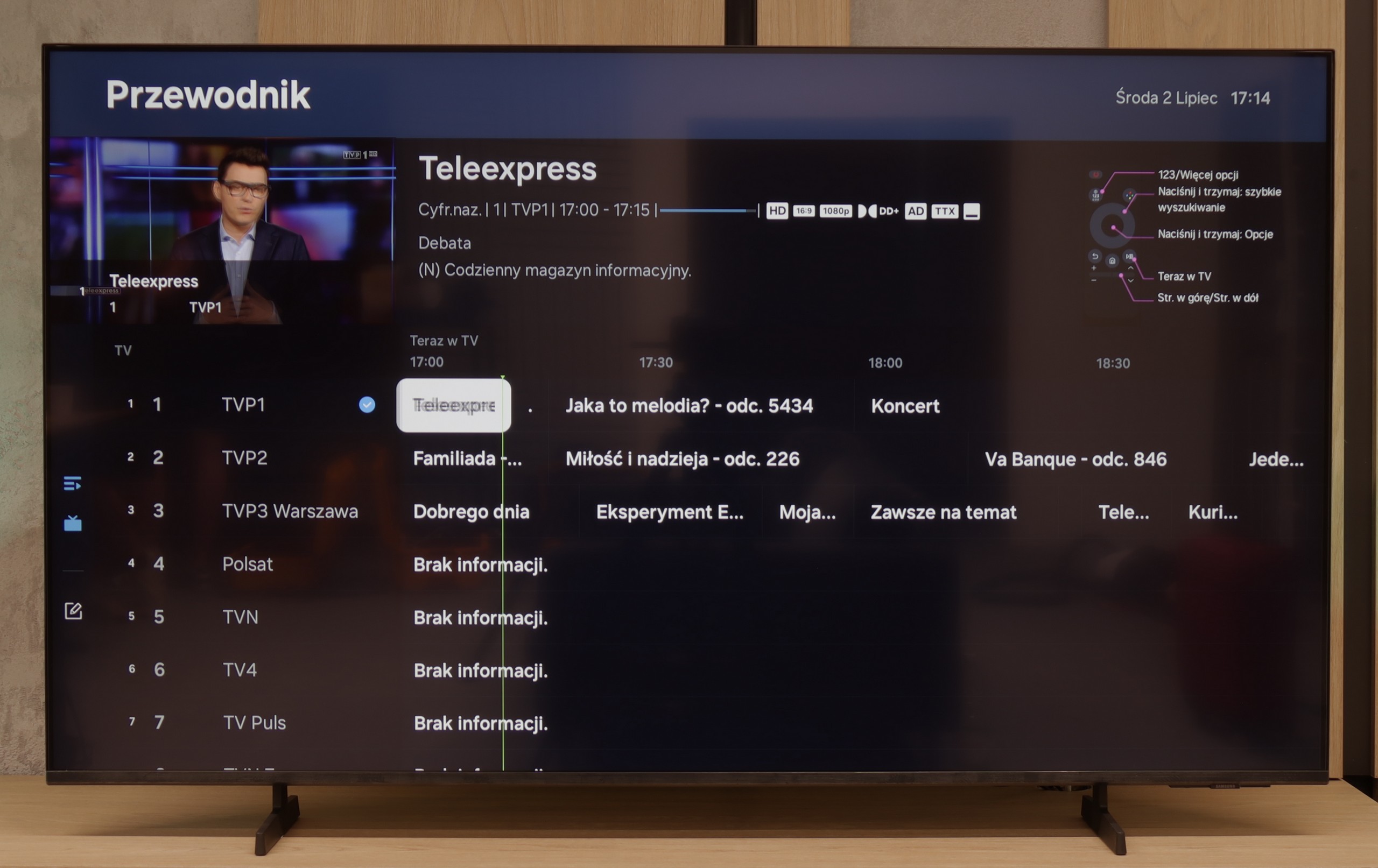
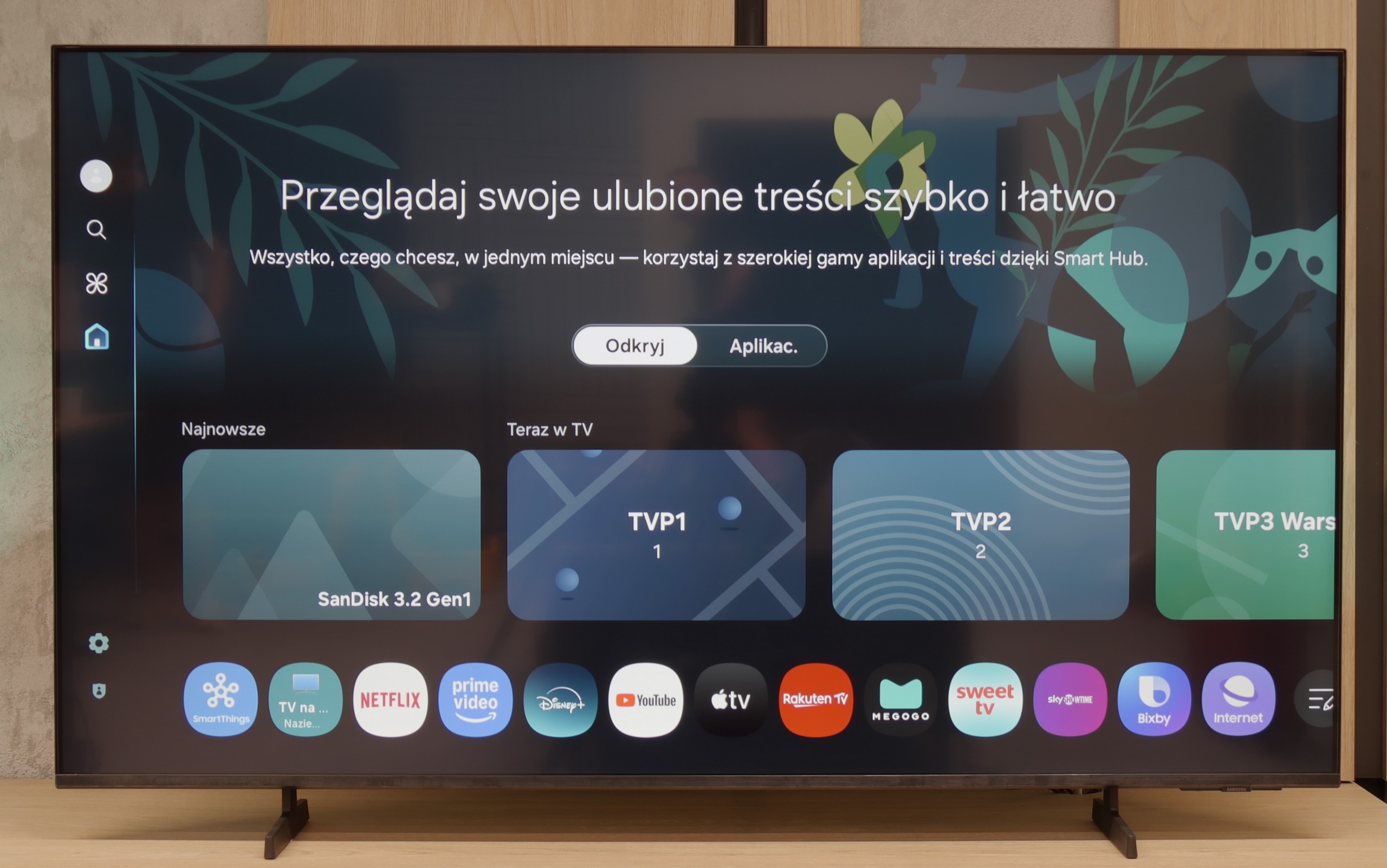
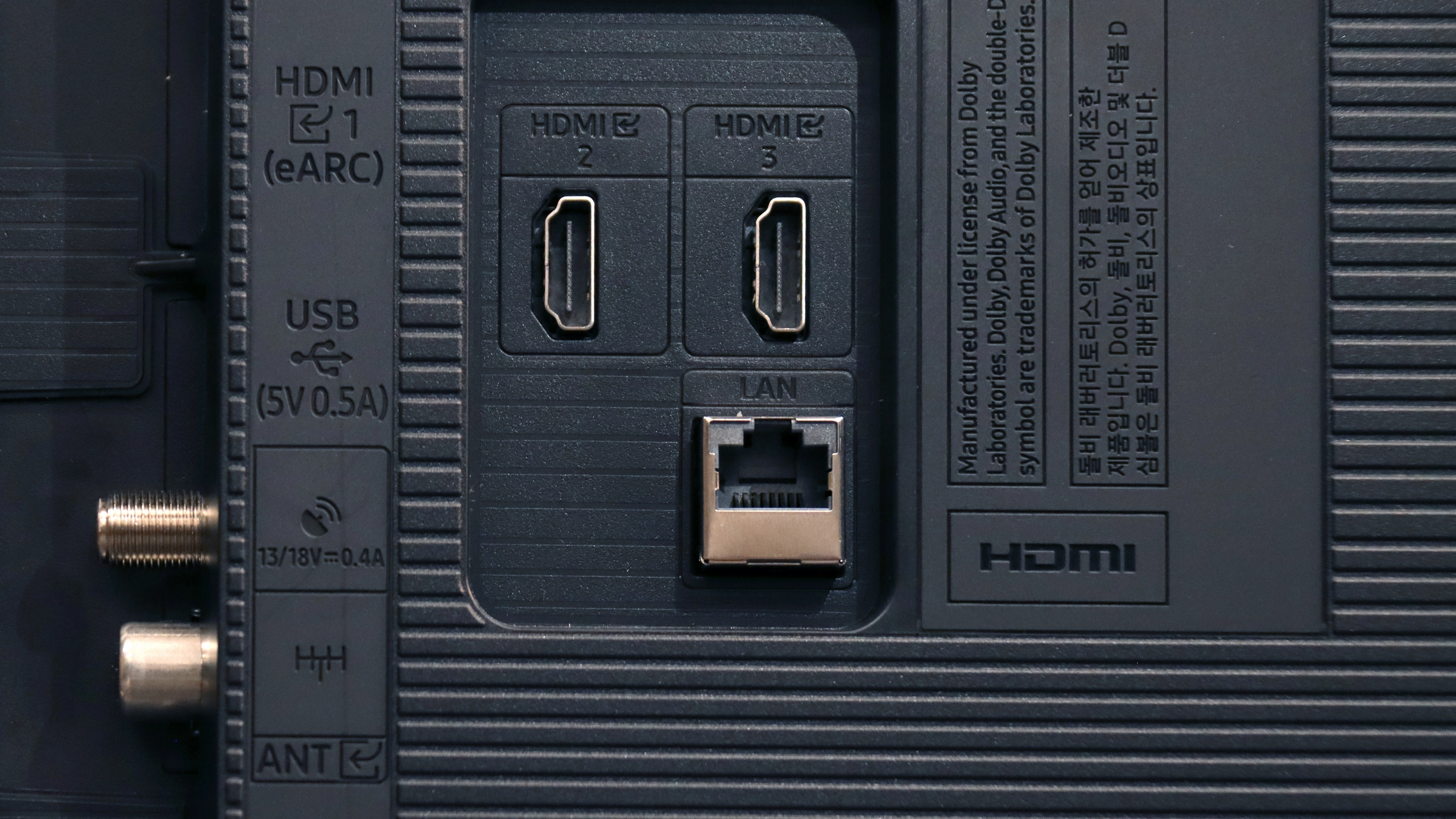
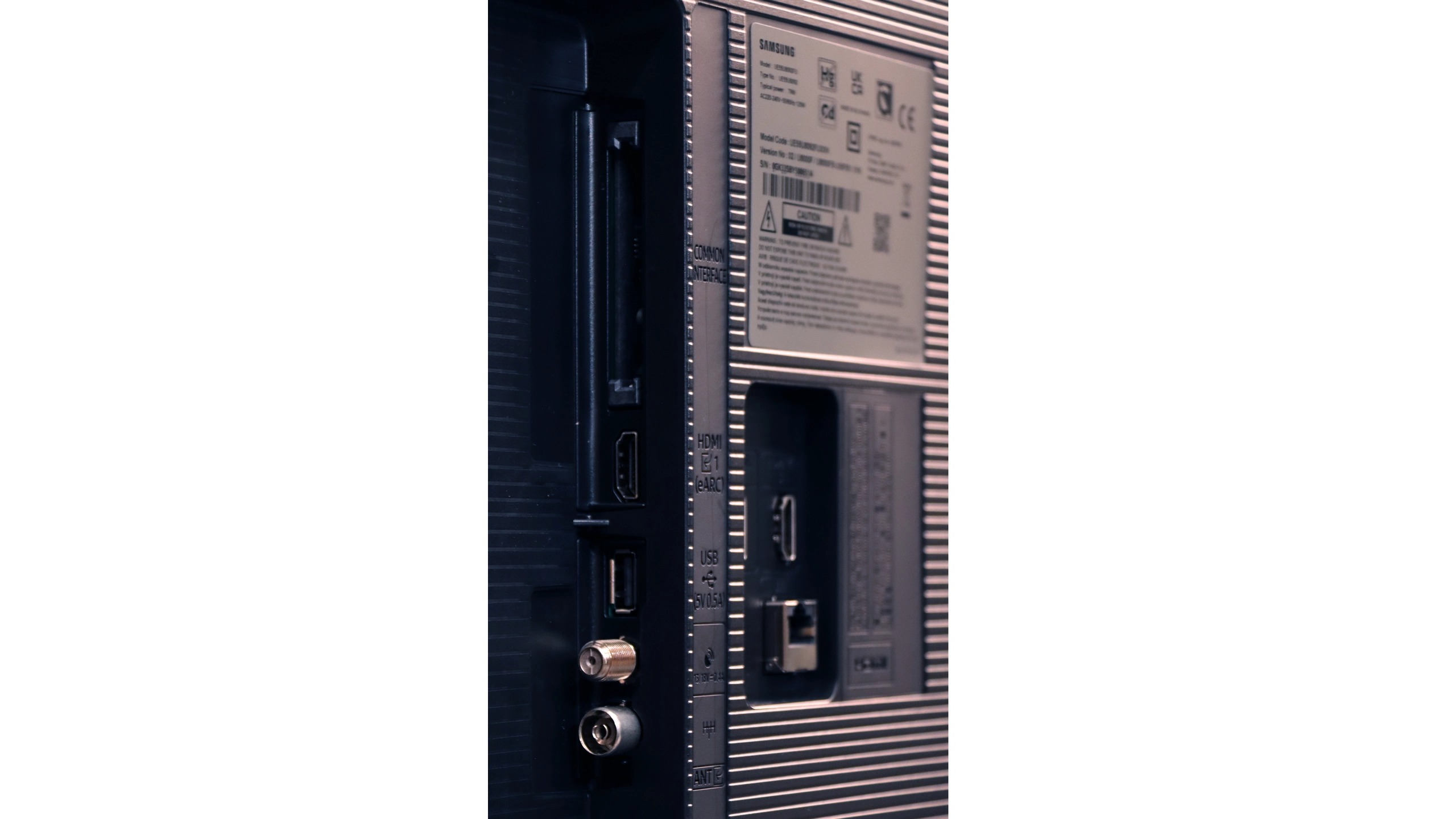
In the OLED909 model, Philips has opted for Google TV instead of its proprietary Titan OS. This solution provides users with significantly greater capabilities, especially concerning the availability of applications. Google TV offers a vast library of programs to download, from popular streaming services to tools and games. The system also supports voice commands, making it easier to search for content and manage the device, enhancing the comfort of daily use.
In terms of user functions, the television also performs well. It features support for AirPlay and Miracast technology, which allow for easy transmission of images and sound from other devices. Additionally, the television easily supports external accessories such as mice and keyboards, enabling it to serve as a more versatile entertainment hub. However, it is worth noting that the OLED909 does not include a PiP (picture-in-picture) feature or the ability to record programmes from its built-in tuners. A new feature in this model is the backlit remote, which looks attractive and operates in hybrid mode – it can function as a smart remote, and when the appropriate button is pressed, the numerical keypad also lights up. Unfortunately, its operation can be irritating, as it is based on standard infrared control, and the only function supporting RF (radio) technology is the voice command feature.
The Philips OLED909 stands out from other models with its four-sided Ambilight system. This allows the television to create dynamic lighting around the screen that adapts to the content being displayed. This solution not only enhances the sense of immersion but also improves viewing comfort in darker rooms. Ambilight remains one of the most distinctive features of Philips televisions, which is difficult to find among competitors.
Samsung U8092F – like all this year's models from this brand – runs on the Tizen operating system. The system itself is really well developed: we have access to many applications (though not all), a well-developed smart home support, and various add-ons, including exclusive Samsung applications. There are also features such as AirPlay and Chromecast, which allow us to easily connect our phone to the television and stream multimedia.
Unfortunately, as this is the cheapest series from Samsung in 2025, the manufacturer has not decided to include a solar remote. In the package, we find a classic infrared remote, which visually resembles the newer version, but unfortunately lacks voice functions. As for the typical "television" add-ons – the recording function and PiP (picture-in-picture) mode are missing. However, HDMI eARC works in its favour, allowing easy control of devices such as a decoder or soundbar with the remote included – and it truly works seamlessly.
Playing files from USB
7.9/10
9.3/10
Supported photo formats:
Maximum photo resolution:

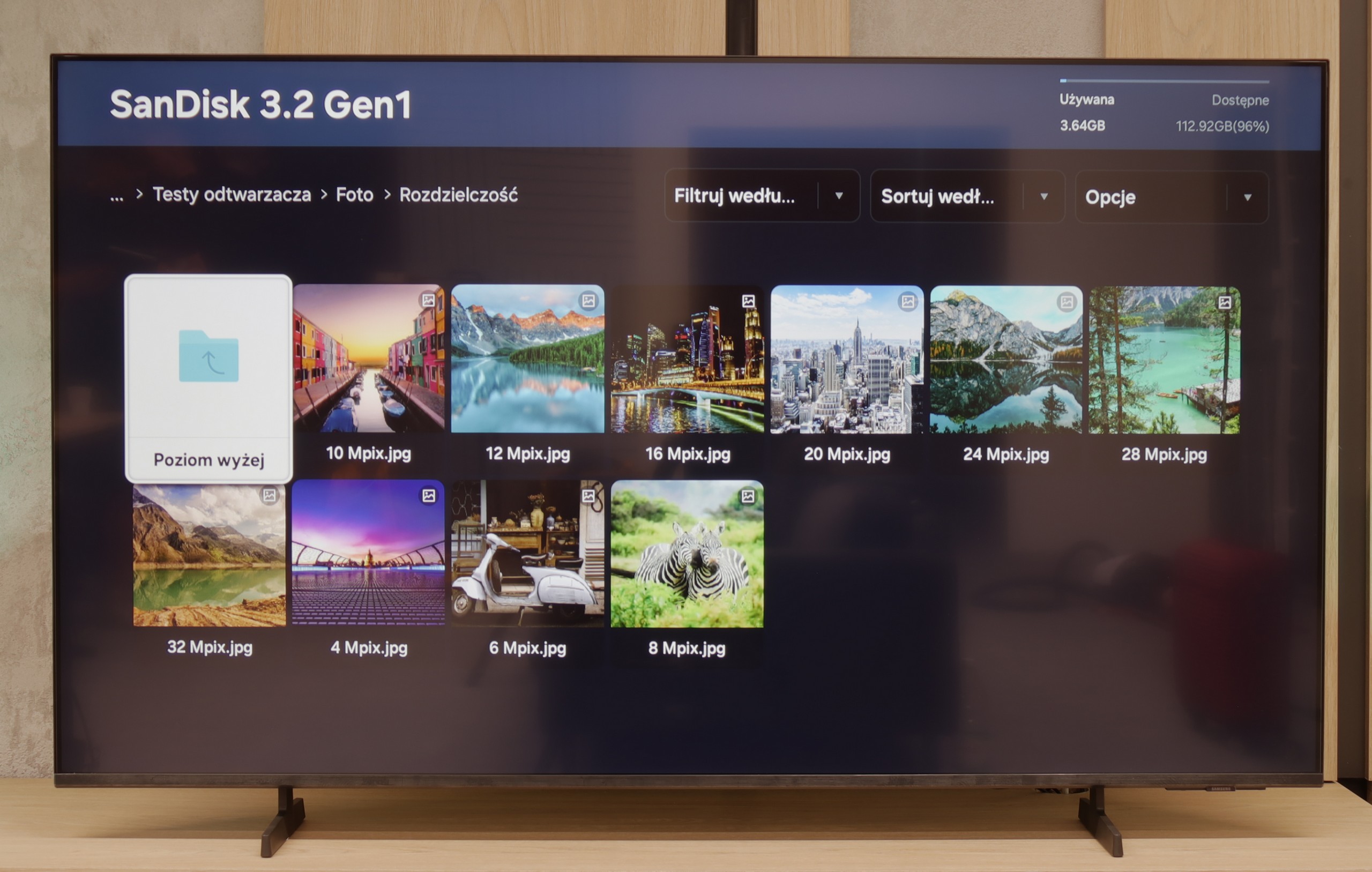
The Philips OLED909 features a built-in media player that handles most popular video, audio, and subtitle file formats with ease. However, it is worth noting that the pre-installed player does not support Polish characters in subtitles, which can be cumbersome when watching content from USB. Fortunately, with the Google TV system, this limitation can be easily bypassed. It is sufficient to download an alternative player from the wide range of available applications, which will provide full support for Polish characters and additional features, such as more advanced subtitle settings or support for less common formats. This means that even minor shortcomings in the factory software are not a major issue for users.
Samsung U8092F handles file playback quite seamlessly – the television supports most popular audio and video formats. Of course, it does not support Dolby Vision, but that is simply not found in any Samsung model.
Some reservations can be made regarding the support for external text files – those that the user would like to add as subtitles to a film. During our tests, the television only played TXT files, while other extensions like SRT or SUB unfortunately did not work. This may not be a problem for everyone, but it's worth knowing. Perhaps it is an issue to be addressed in the future with an update to the television's operating system.
Apps
9.6/10
8.7/10














































Sound
8.1/10
5.7/10
- Maximum volume--
- Dolby Digital Plus 7.1
- Dolby True HD 7.1
- Dolby Atmos in Dolby Digital Plus (JOC)
- Dolby Atmos in Dolby True HD
- DTS:X in DTS-HD MA
- DTS-HD Master Audio
The Philips OLED909 stands out with its built-in soundbar featuring a navy fabric finish, branded by the renowned name Bowers & Wilkins. At the bottom of the screen, we find a solid speaker system, additionally supported by a built-in subwoofer at the back of the casing. The sound quality is truly impressive for the class of this device. The soundbar delivers clear and detailed audio that performs well with both dialogues and sound effects in films or games.
U8092F does not pretend to have a home cinema on board. We receive a standard set of 2 x 10 W, which sounds adequate, but without much excitement, although it does have a slight bass. For everyday viewing, such an audio setup is entirely sufficient. We were pleasantly surprised that it managed to play a film with the built-in Dolby Atmos (JOC) codec – though of course, we are not talking about real surround sound.
Sound Quality Test
No sound test video
